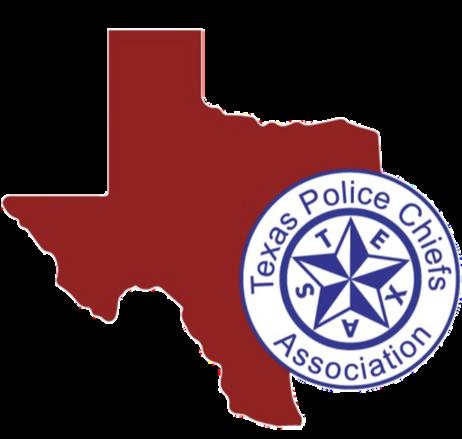











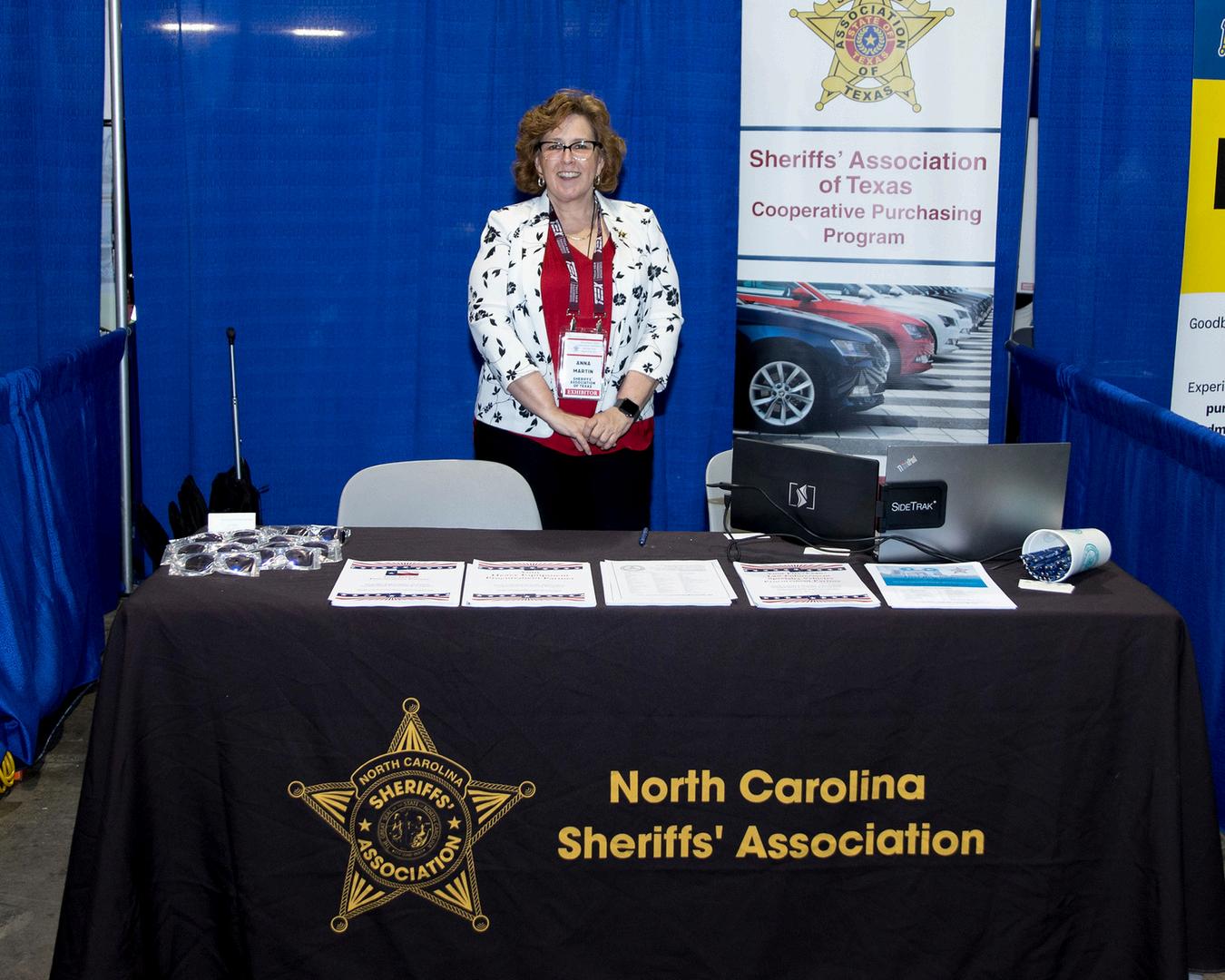




















2023–2024 was an outstanding year for the Texas Police Chiefs Association (TPCA) and Foundation. It is anticipated that 2024-2025 will be equally successful.
Recently, TPCA had the privilege of naming the headquarters in honor of long time TPCA Executive Director and General Counsel, Chief James McLaughlin, Jr., at a well-attended event. Chief Gene Ellis is now the Executive Director of TPCA, and Chief Scott Rubin will serve as the Assistant Director. After engaging in numerous productive meetings with both, I am very optimistic about the future of TPCA.
Mark your calendars for the TPCA Conference 2025, scheduled for April 14–17 in Galveston. We look forward to your participation!
Our recent focus areas include:
Chief Scott McCollum, head of the Membership Committee, is collaborating with TPCA staff to identify innovative ways to boost membership across departments of all sizes.
Chief Gary Tittle leads the Legislative Committee, which is composed of exemplary Chiefs and executives dedicated to achieving the best outcomes for law enforcement. While all our committees are essential, the Legislative Committee is particularly crucial.
Chief Steve Dye chairs the newly formed Recruitment and Retention Committee, which is tackling one of the most challenging issues in law enforcement today. His team is developing exciting initiatives that they will soon share.
Chief Stan Standridge heads the Officer Safety Committee, our most active committee, which disseminates vital roll calls statewide weekly. Their efforts to provide lifesaving information statewide are invaluable, and we extend our gratitude to TML Risk Pool for their ongoing support of this effort.
TPCA aims to be the central hub of information, connecting agencies with regional affiliate groups. If your agency is not part of an affiliate group, please reach out to the TPCA office. Networking is crucial, especially for new chiefs, to share ideas and strengthen law enforcement efforts against crime.
An executive board meeting in Waco, Texas, is scheduled for September 13, 2024, and it promises to be worthwhile. Further details will be provided soon. There is an opportunity to join colleagues at the Capitol in Austin in late January 2025.
Chief Albert Garcia’s 2024 TPCA Conference set records in attendance, fundraising, and vendor participation. Building on that momentum, we eagerly anticipate an even more successful conference in 2025 in Galveston.
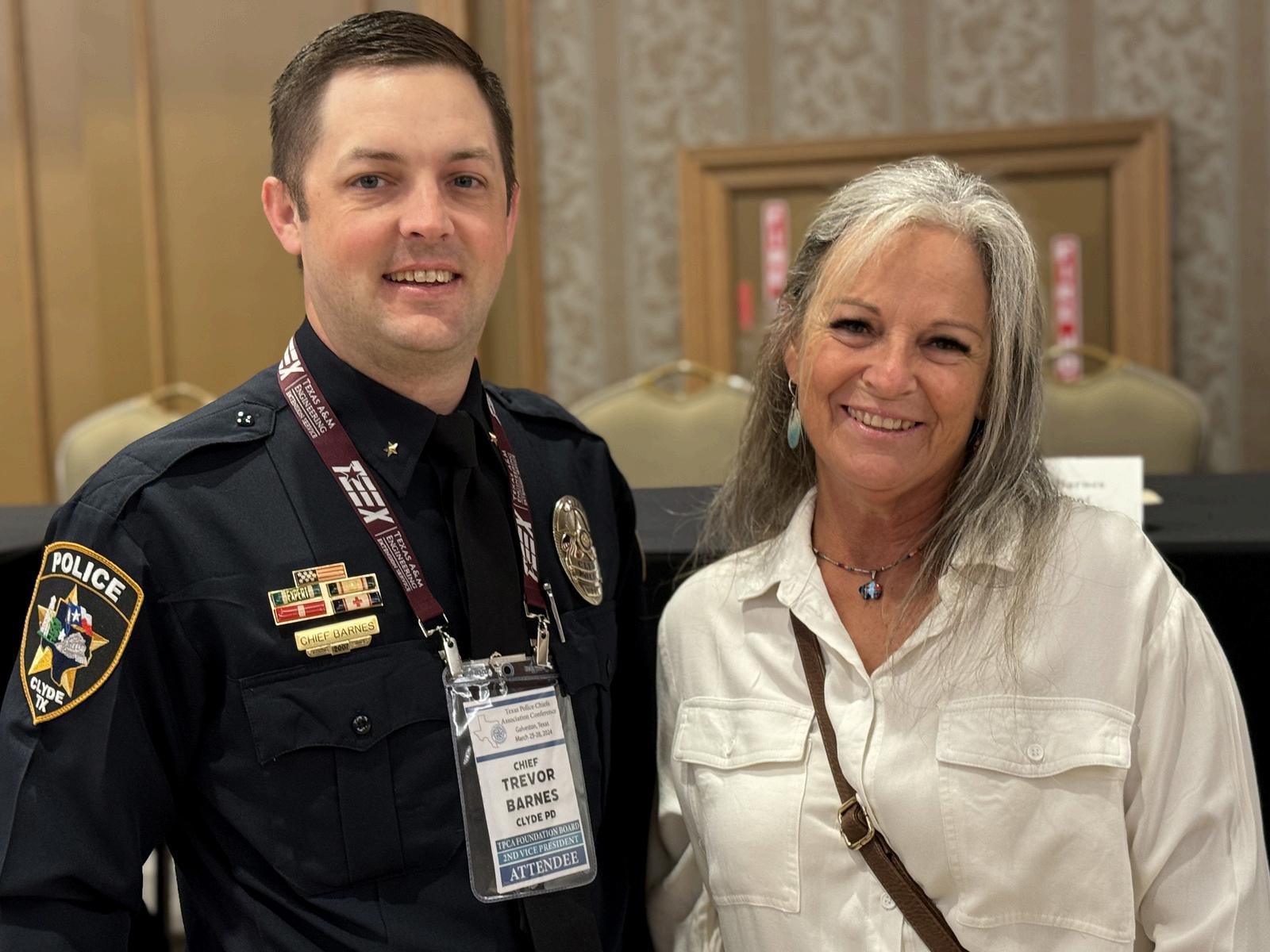
TPCA is here as a resource. Please contact Chief Ellis or TPCA staff members with any questions.
Chief Trevor Barnes
The 2023–2024 term was dynamic from the start, kicking off right after an exceptional conference in Fort Worth. With legislators still in session, we continued our efforts to promote beneficial legislation and block detrimental ones. Though our "accreditation" legislation was vetoed by the governor at the last moment, this may have been beneficial as we were not in agreement on making it mandatory. Chief Gary Tittle and his committee did an outstanding job and deserve commendation.
We addressed many pressing matters, necessitating frequent Executive Board meetings throughout the year. Key issues included selecting a new executive director, fostering relationships with border teams, planning IT upgrades, and preparing for the 2024 conference. We traveled to the valley, enjoying incredible hospitality in Mission, Texas, and took a border boat tour to understand the challenges there. Thank you to Chiefs Ayala, Vela, and Torres and to everyone who contributed to our meetings. We also visited Amarillo, Texas, hosted by Chief Birkenfeld, and enjoyed a fun time at the Big Texan.
We successfully hired Chief Gene Ellis as the new Executive Director. Congratulations, Chief Ellis! I am confident he will do remarkable things for our association Thanks to all involved in the selection process for their hard work and dedication.
The year ended with a highly successful conference in Galveston, Texas, noted for its high attendance, vendor participation, spouse attendance, and funds raised. Special thanks to the TPCA staff, my wife Michele Garcia, and Chief Dan Harris's wife Katrina Harris for their help with the golf tournament and spouse events.
My year as president was incredibly busy and flew by, but I am deeply honored to have served my fellow Chiefs in Texas. Our association leads in developing leaders, setting national examples for professional policing, and pioneering new initiatives This is only possible because of leaders like you. Keep up the great work and stay safe, my friends.
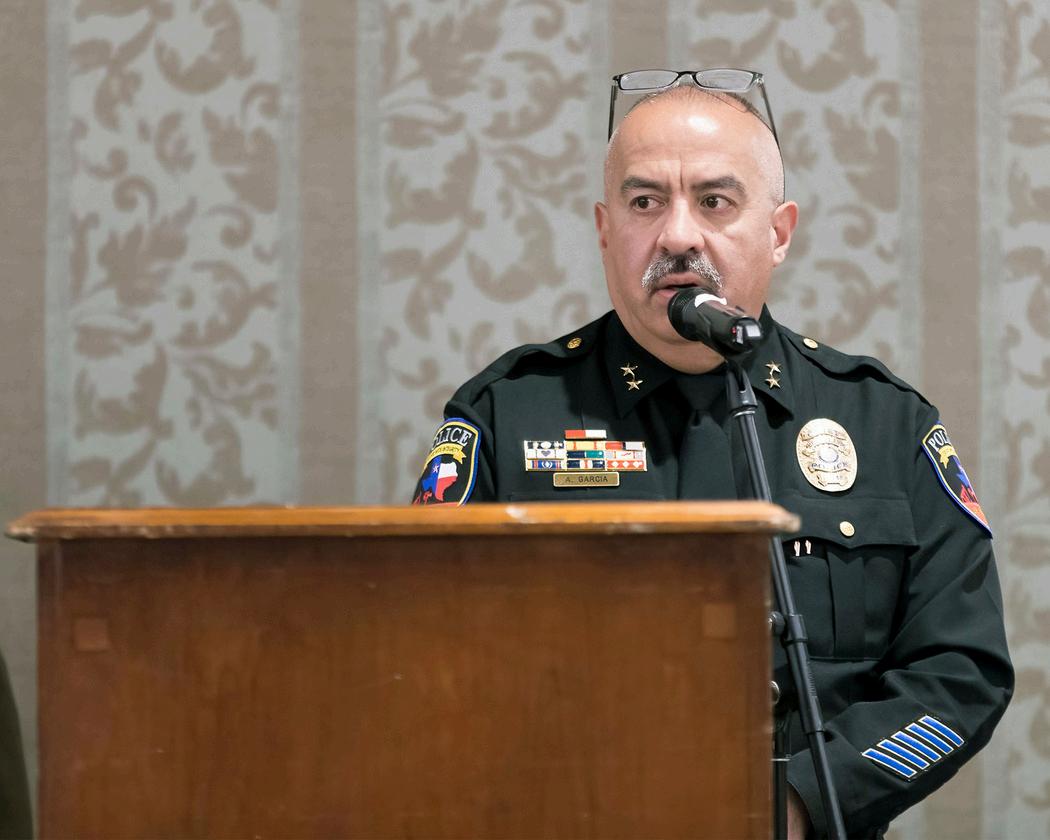
After nearly 35 years in our honorable profession and 25 years as a police chief, I am privileged to assume the role of Executive Director of the largest state police chiefs association in the United States Chief James McLaughlin (retired) set a high standard, leaving TPCA financially strong and with an impeccable reputation We are fortunate that he continues to contribute part-time as our general counsel. My goal is to build upon the solid foundation established by Chief McLaughlin and all past and present board members. Enhancing communication with members, strengthening legislative relations, and expanding our association have been among my top priorities.
Immediate Past President, Chief Albert Garcia (retired), led a record-breaking conference this year in Galveston. We had over 700 attendees, 200 exhibitors, 85 spouses, and 8 breakout training sessions. The fundraising efforts for the TPCA Foundation’s Officer Death Benefit Fund included a golf tournament, a 5K run on the beach, and a raffle for a new Chevrolet Silverado truck Please join me in expressing appreciation to everyone working behind the scenes to make these efforts possible, including Chief Ken Adcox, Chief Trevor Barnes, Chief Jeff Bert, Chief Todd Hunter, and Chief Chad Taylor Over $140,000 was raised to assist the families of fallen officers in Texas Unfortunately, these funds will cover less than the needs for a year. Please consider visiting the Foundation page on the TPCA website and making a small donation to the Officer Death Benefit Fund at www.texaspolicechiefs.org/foundation.
The TPCA Legislative Committee is already diligently preparing for the 89th session of the Texas Legislature. The enclosed article by Chief Gary Tittle, Chair of the Legislative Committee, details TPCA's efforts to monitor and respond to legislation affecting our profession. Chief Scott Rubin (retired) will be joining TPCA full-time in August to assist with legislative relations. Now is the time to connect with your local representatives and senators. Relationships matter, and during the session, they will want to hear from you, their local chiefs
If you haven't already, I encourage you to explore the outstanding leadership training courses offered by TPCA. Our Training Director, Chief Kevin Lunsford (retired), is currently finalizing the 2025 calendar, which will be released soon. The demand for the Law Enforcement Command Officer Program (LECOP) has been remarkable, and many TPCA courses fill up quickly as a result. Congratulations to everyone who has achieved LECOP status so far this year we're nearing 100 recipients. Now is a great time to start this program or encourage members of your team to participate.
I look forward to meeting many of you as TPCA attends regional affiliate meetings, the New Chief’s School at LEMIT, and the Texas Police Chiefs Leadership (TPCLS) series Please join us for the 66th Annual TPCA Conference in Galveston from April 14–17, 2025. We expect to open registration in a few months.
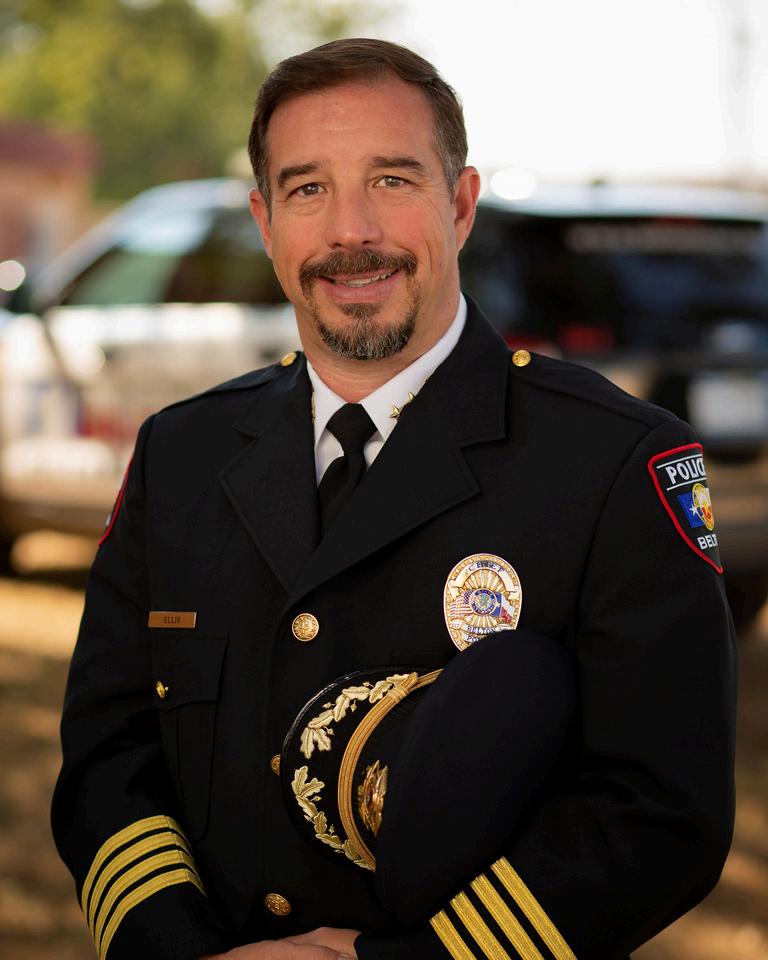

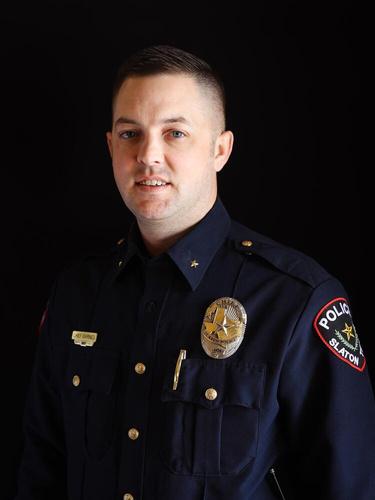
CHIEF TREVOR BARNES CLYDE POLICE PRESIDENT
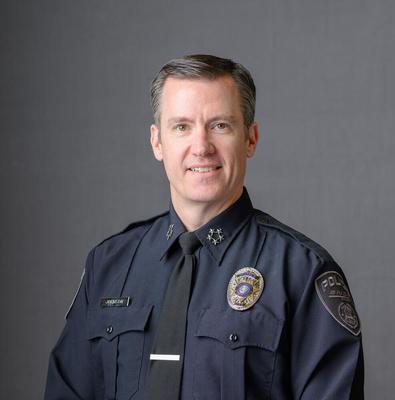
CHIEF WILL JOHNSON BNSF RAILWAY POLICE 1ST VICE PRESIDENT
CHIEF KENITH ADCOX
UNIVERSITY OF TEXAS MEDICAL BRANCH POLICE SECRETARY
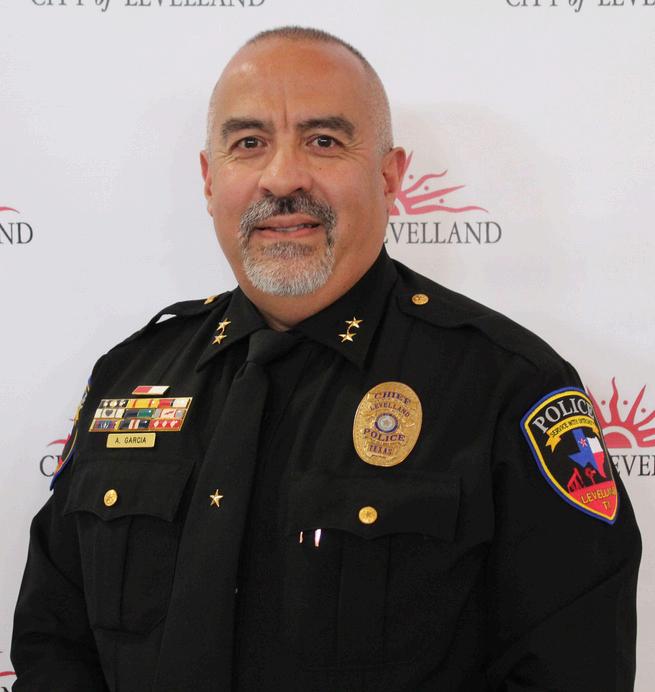
CHIEF ALBERT GARCIA, RETIRED SOUTH PLAINS COLLEGE IMMEDIATE PAST PRESIDENT
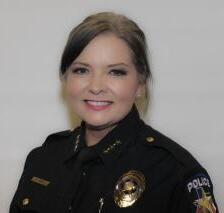
CHIEF CARRIE ELLIS TEMPLE COLLEGE POLICE 2ND VICE PRESIDENT
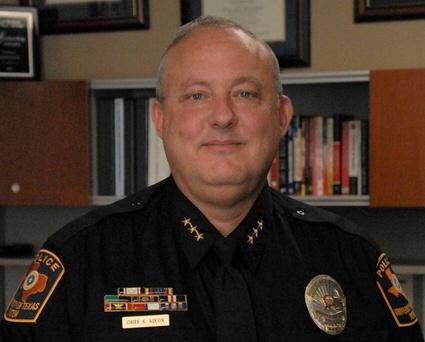
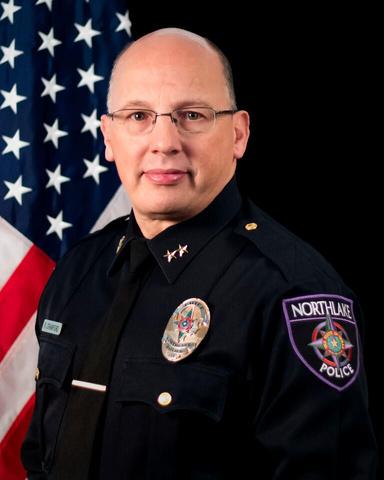
CHIEF ROBERT CRAWFORD NORTHLAKE POLICE SERGEANT AT ARMS
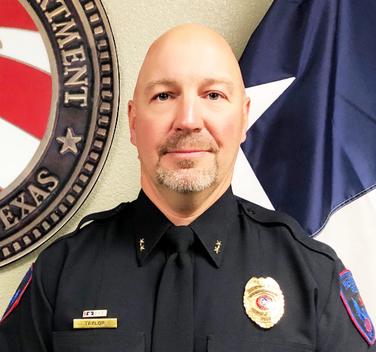
CHIEF CHAD TAYLOR HENDERSON POLICE 3RD VICE PRESIDENT
CHIEF EDDIE WILSON COPPERAS COVE POLICE TML BOARD DIRECTOR
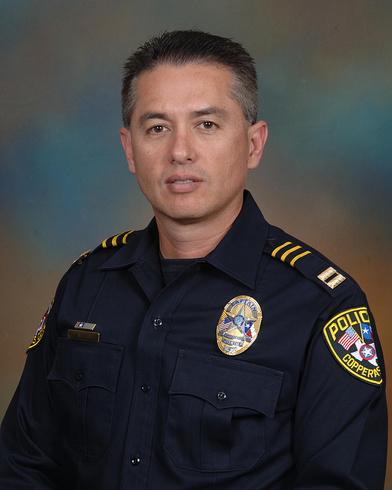

Galveston 2024 exceeded expectations with 800 attendees and 200 exhibitors, marking TPCA’s largest conference in its 65-year history. Highlights included a truck raffle, the annual golf tournament at Moody Gardens and the Run2Remember on the beach, all supporting the families of fallen officers.
Preconference activities featured meetings of the TPCA Foundation Board, Executive Board, and several committees. The evening concluded with a social event at Fish Tales Restaurant, generously hosted by Blauer Manufacturing Co., Amazon Web Services (AWS), Panasonic, and Point Blank Body Armor. We greatly appreciate our sponsors' efforts in facilitating this networking opportunity.
Dynamic speakers kicked off the first full day, followed by eight different breakout sessions. Each session was well-attended, with the main feedback being the inability to attend all of the outstanding topics.
The President’s Reception in the Exhibit Hall was another highlight, with over 200 exhibitors and high engagement throughout the day. We extend our gratitude to all exhibitors for their investment in engaging with police leaders from across Texas.
Mark your calendars for the TPCA 2025 conference, set for April 14–17 in Galveston, promising another phenomenal opportunity for learning, networking, and exploring
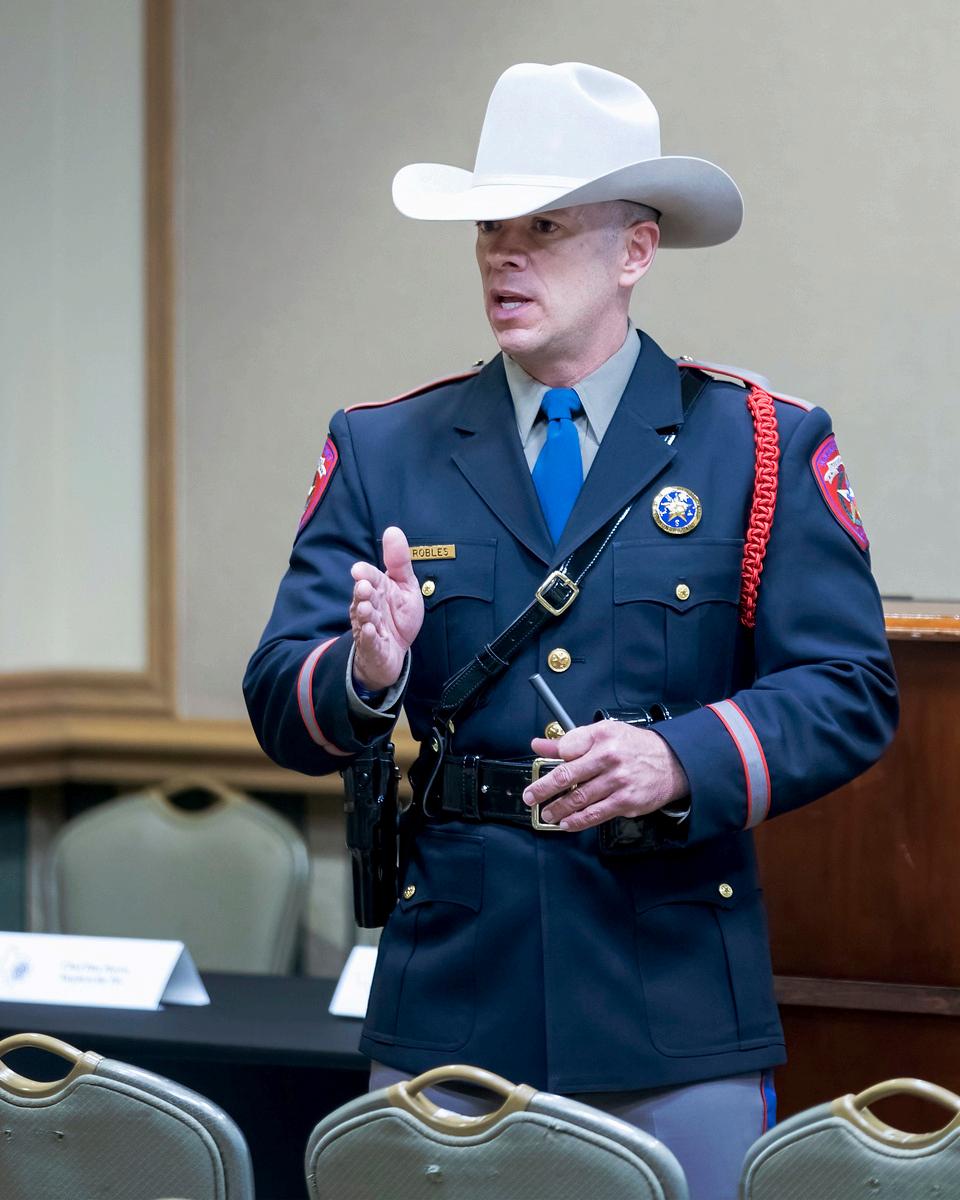
products and technology.
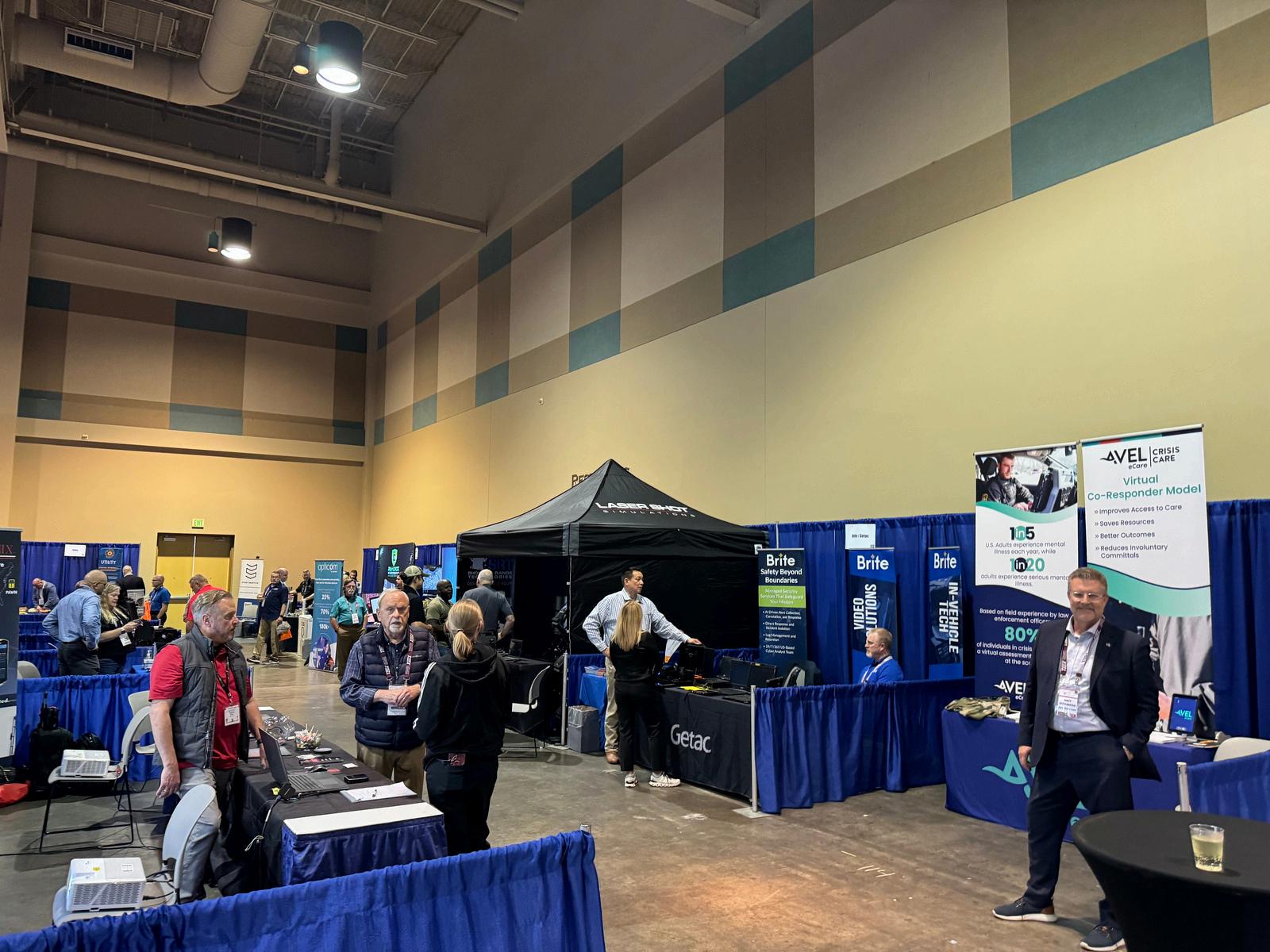
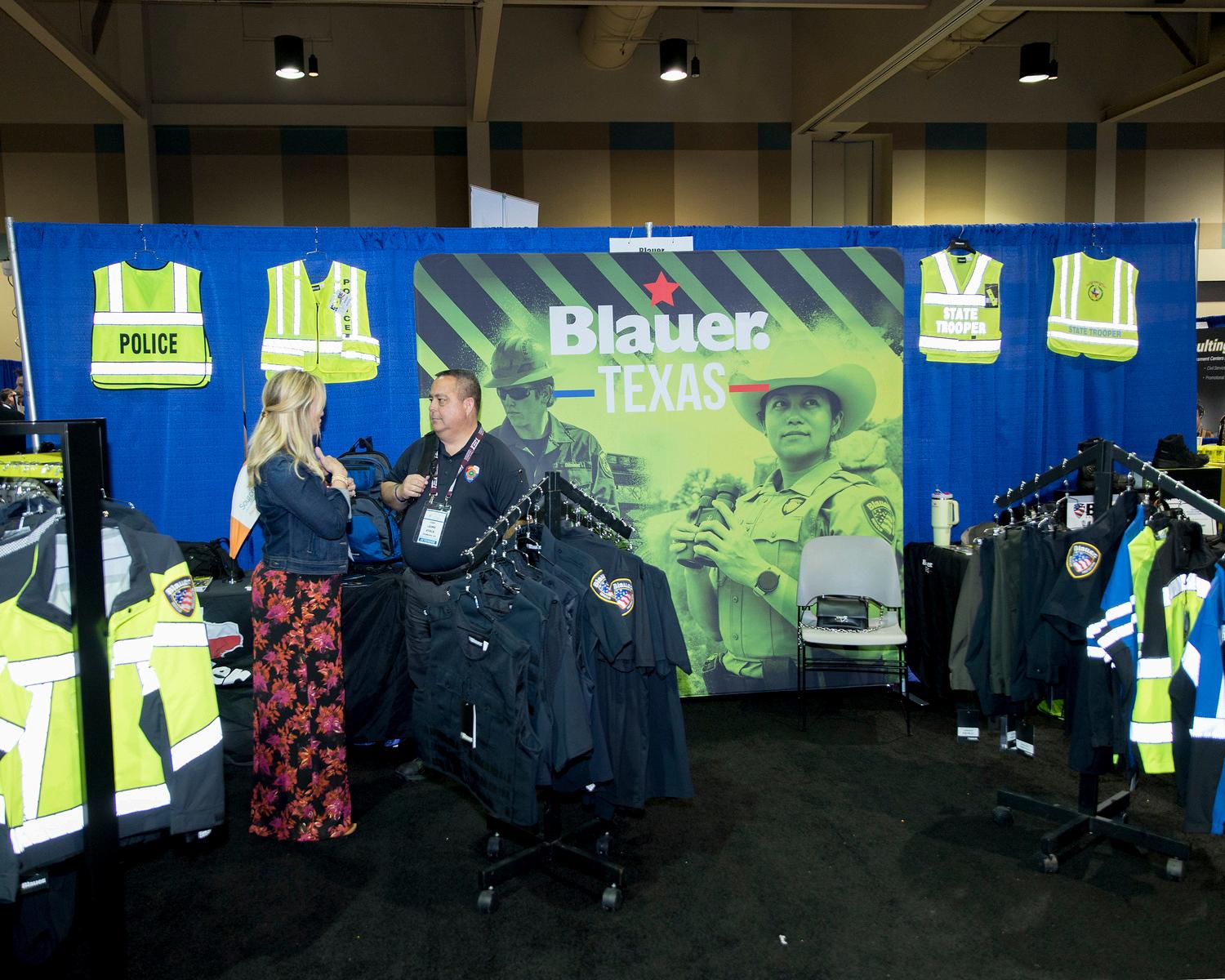
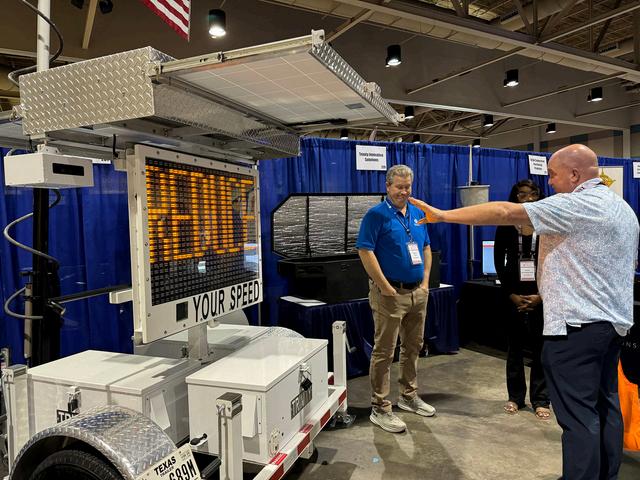

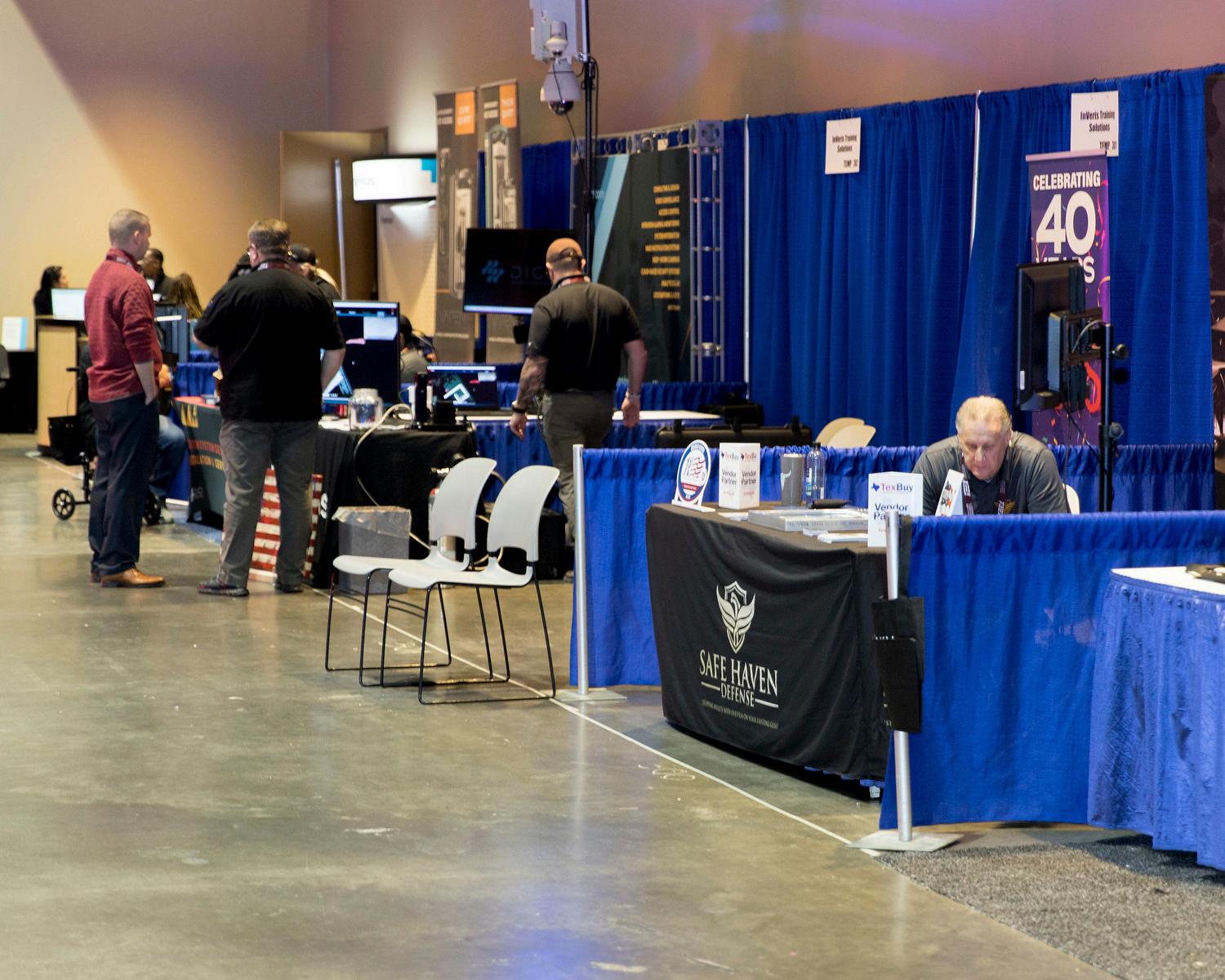
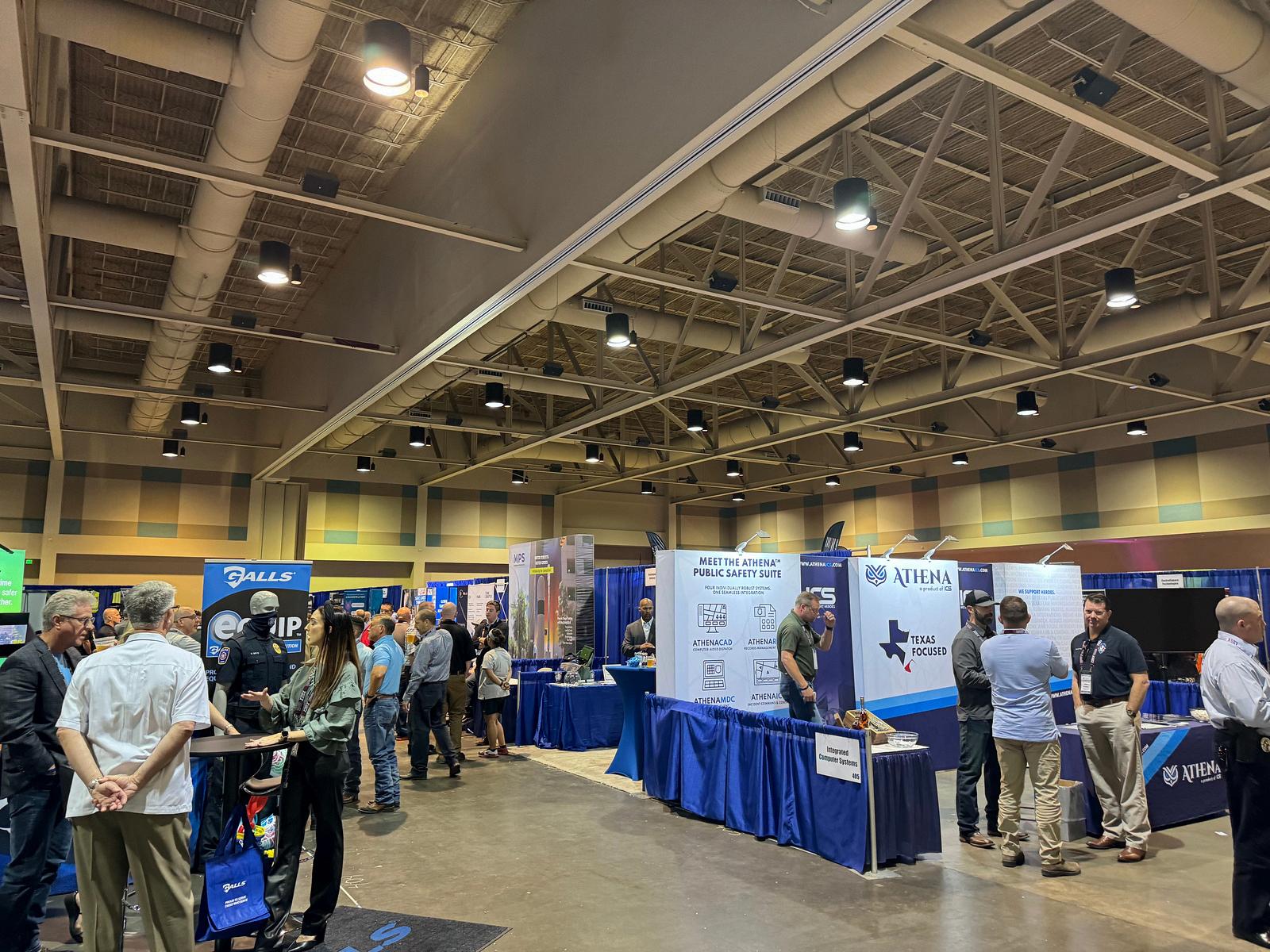

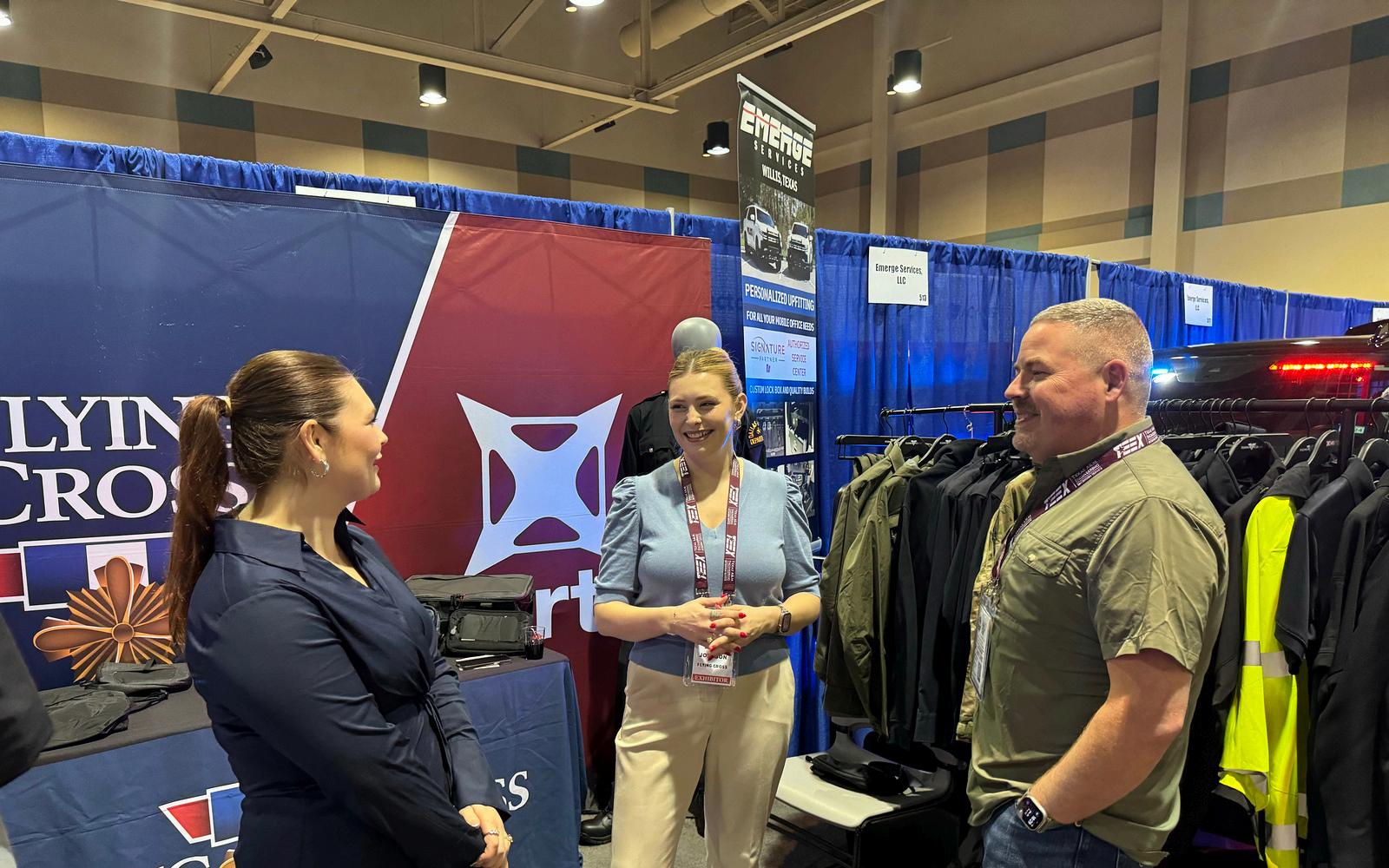
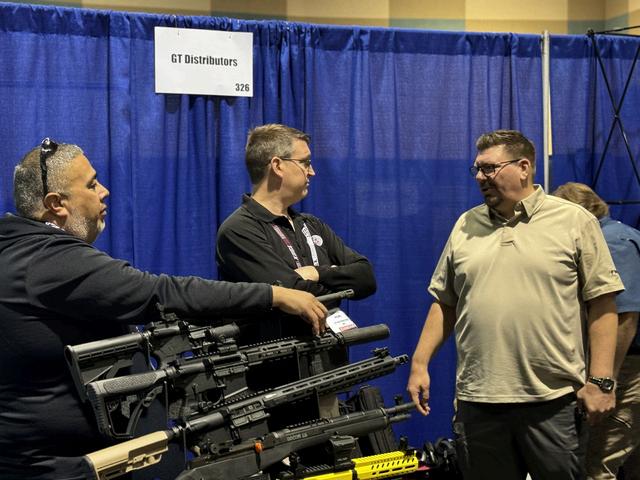

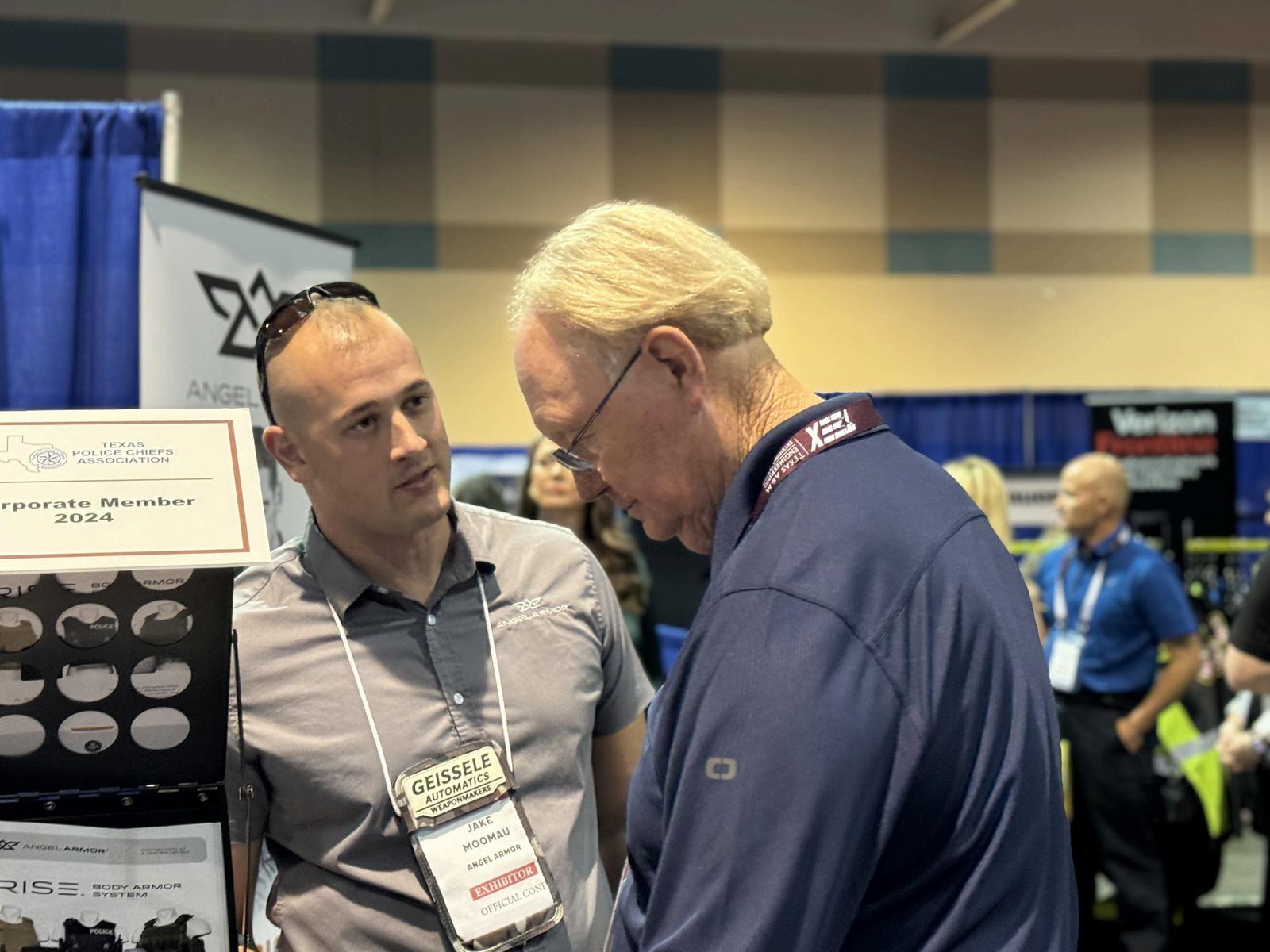
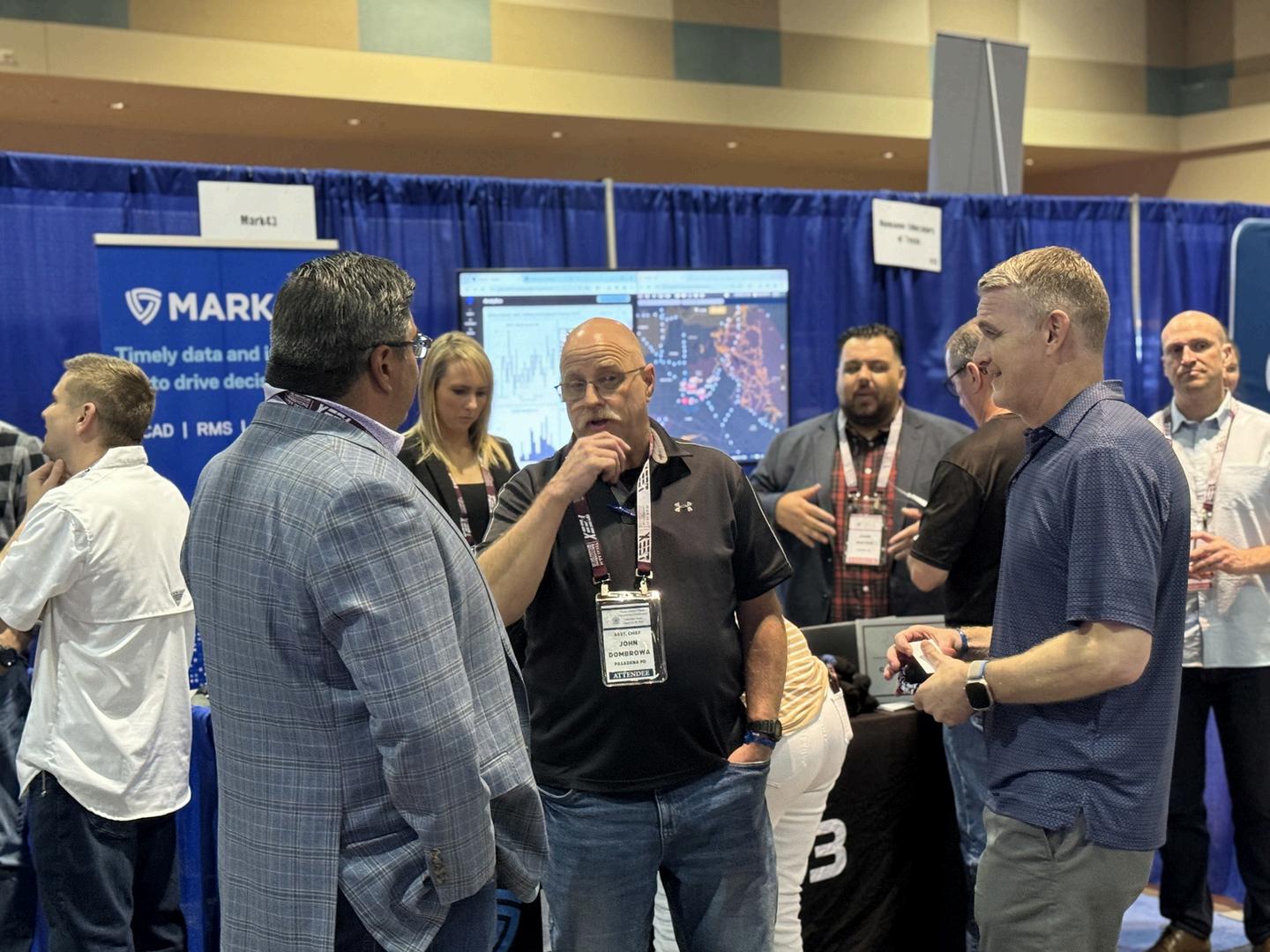
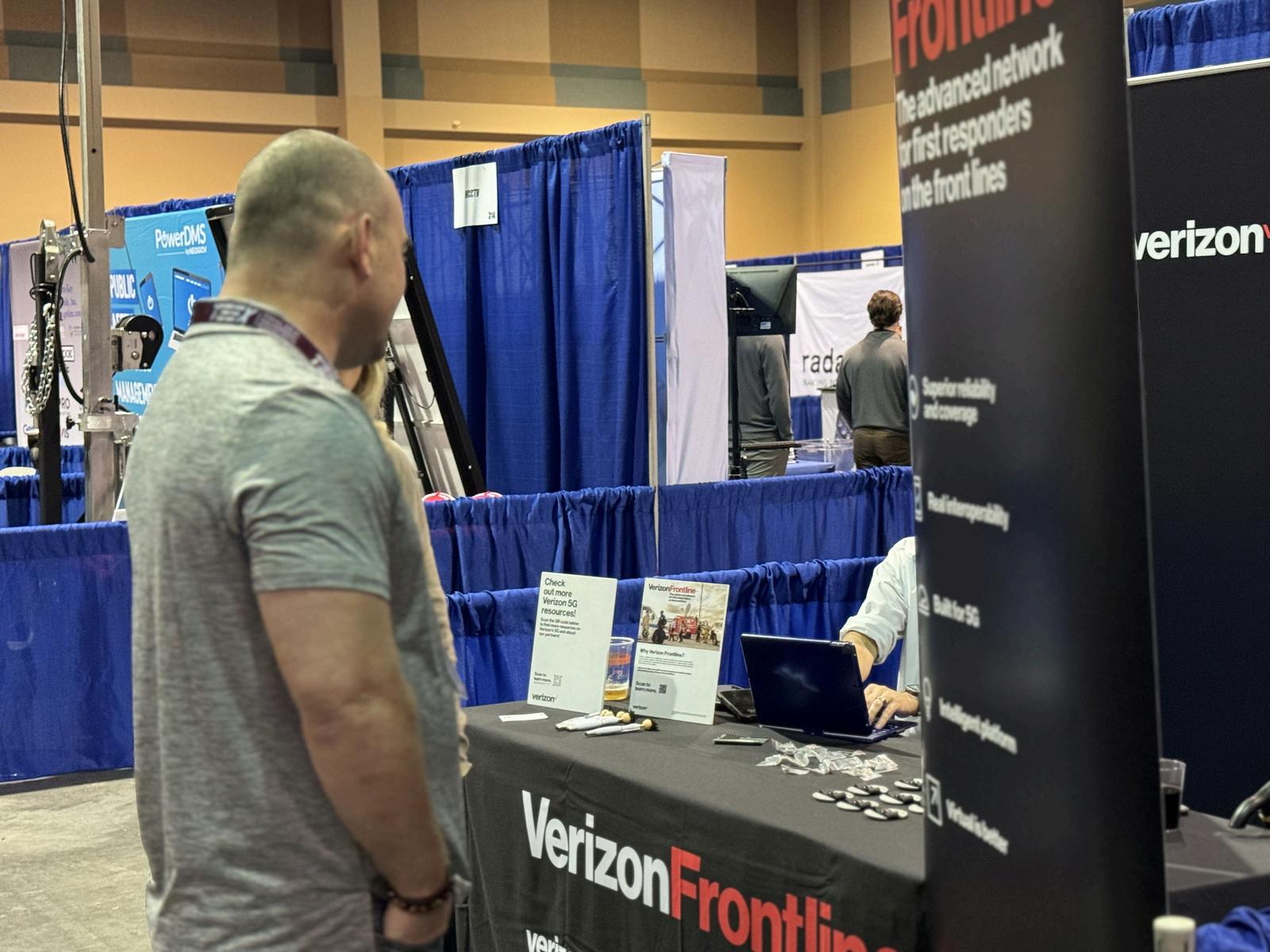

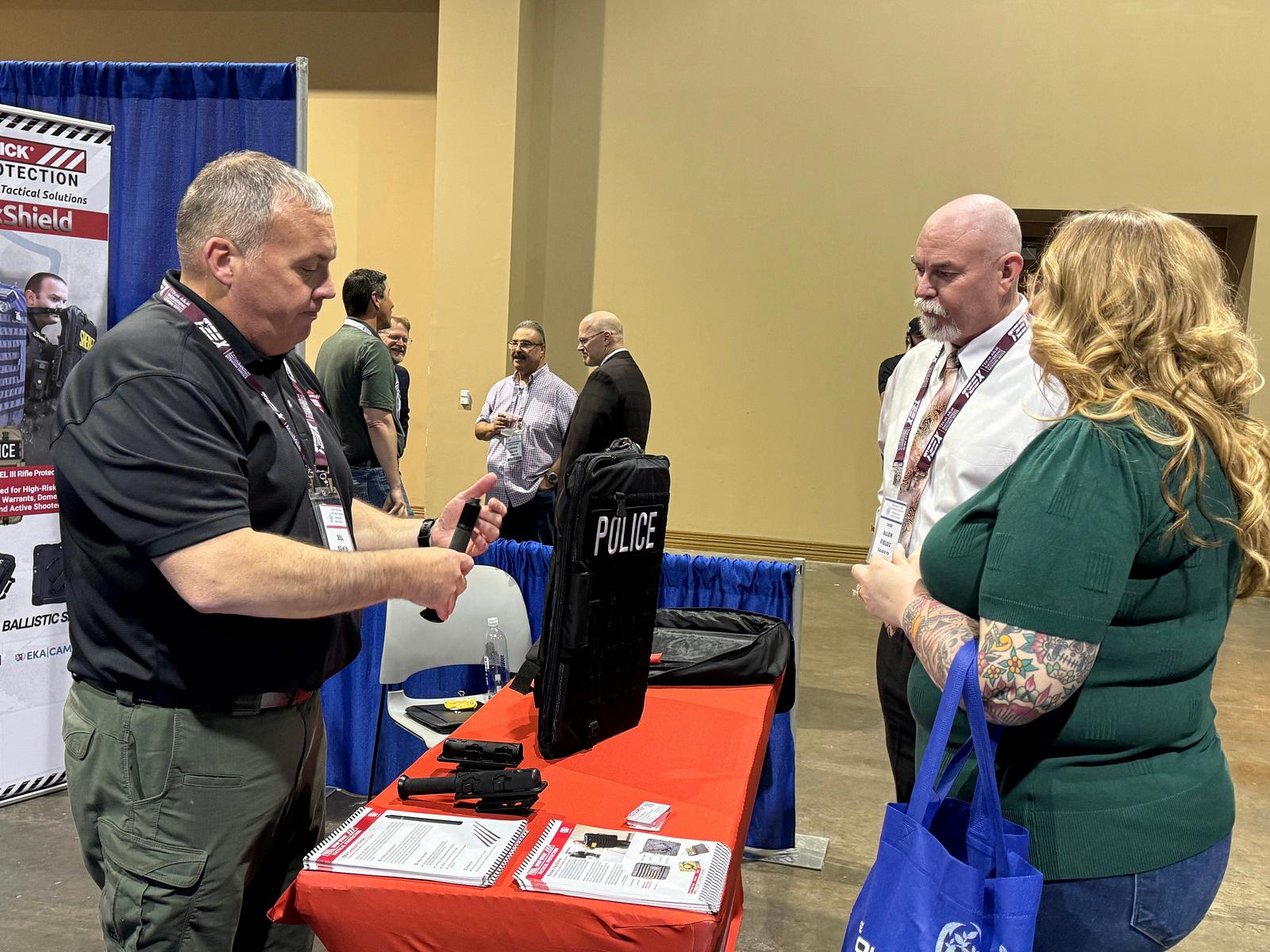
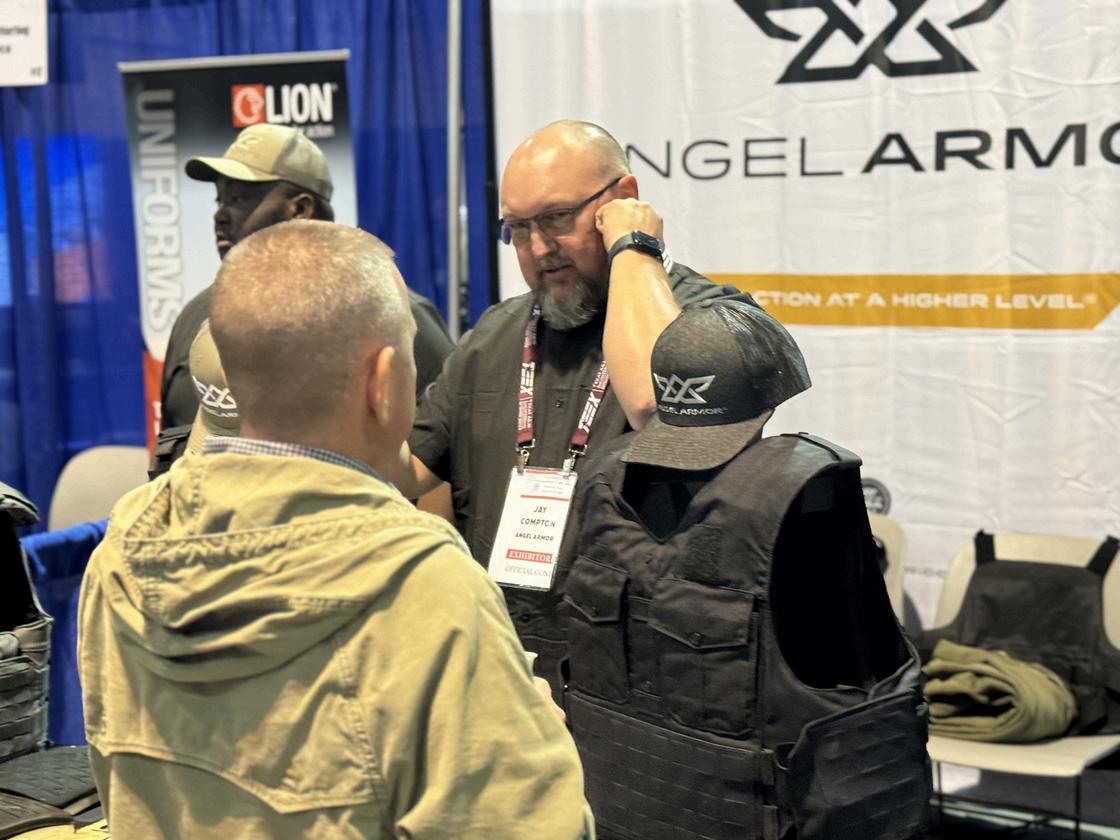

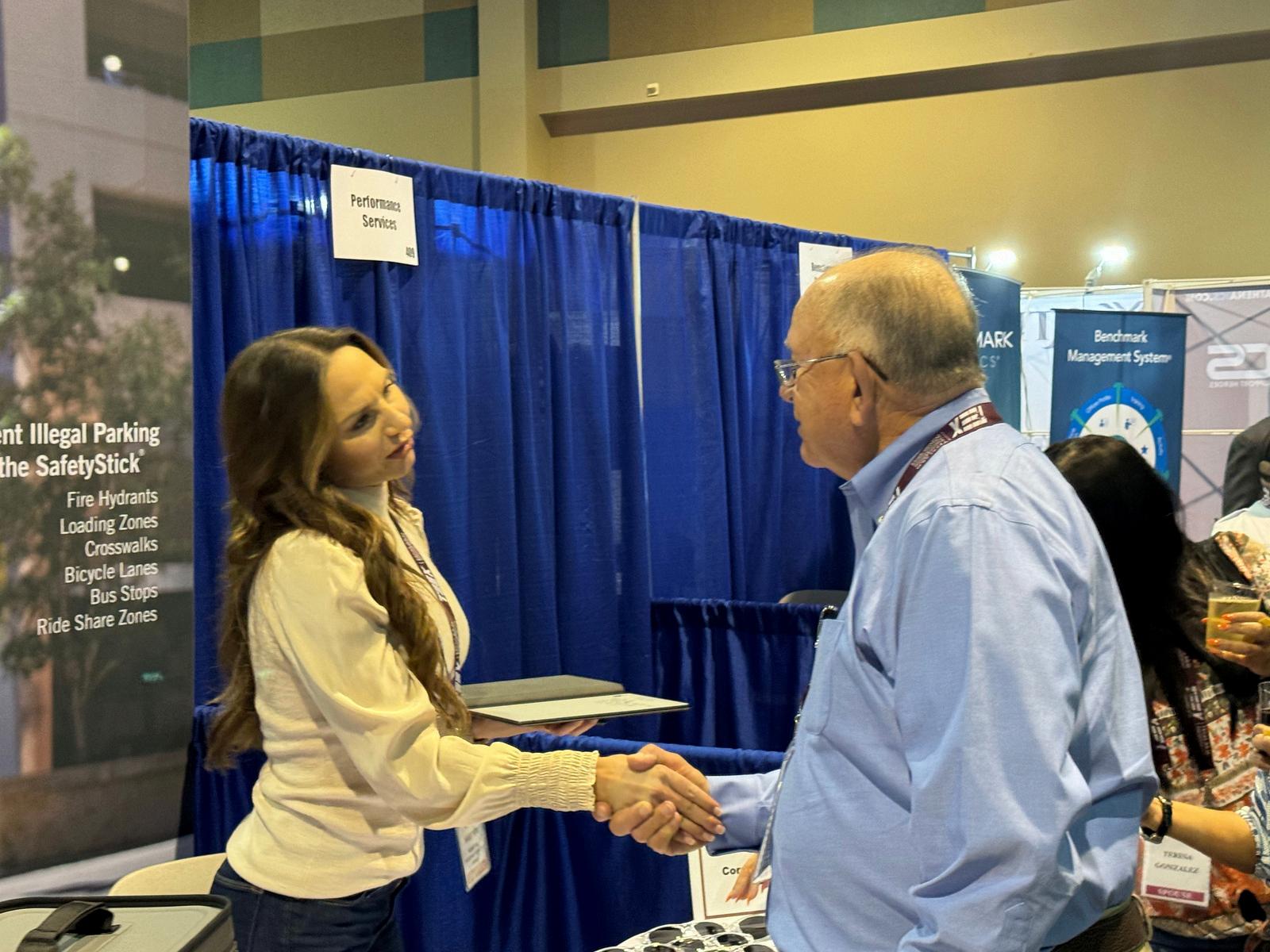




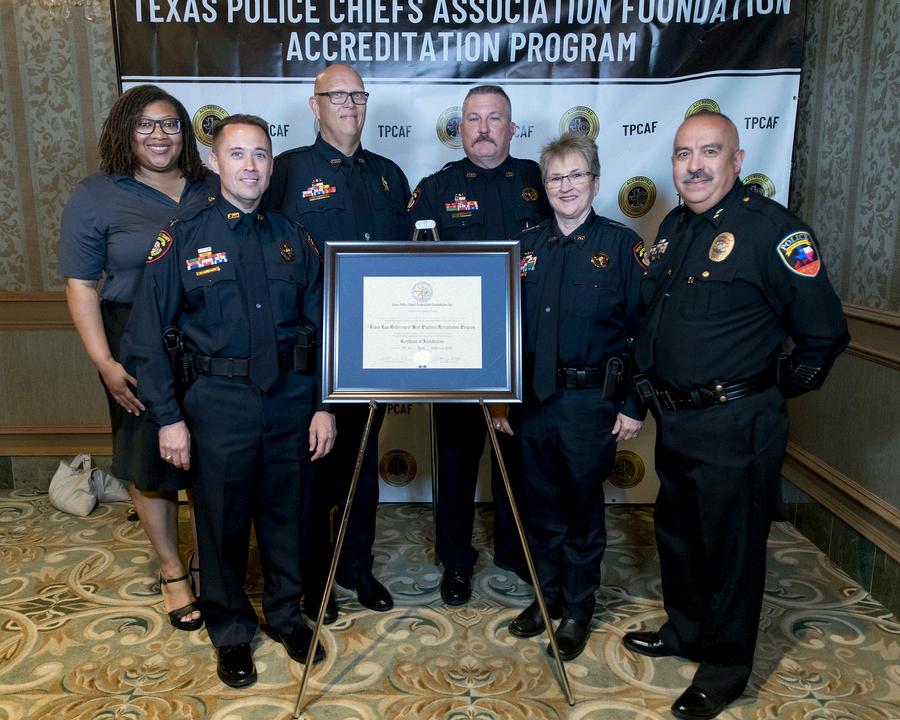
The 2024 TPCA Annual Conference set a new record with the number of new agencies awarded "accredited status" through the Texas Police Chiefs Association Foundation Best Practices Accreditation Program. Twenty-two new agencies joined the ranks, along with over forty other agencies that successfully completed reaccreditation onsite inspections. Notably, the Harris County Fire Marshal's Office became the first fire marshal to be accredited by the program.
Currently, 214 agencies are fully accredited, and another fifty-one are in the self-assessment phase, working to meet best practice standards. The accreditation program is supported by the Department of Justice, Community Oriented Policing Services, and has garnered attention from Texas state legislators, leading to the introduction of bills that would mandate accreditation for receiving state grant funding.
For more information about the TPCAF Accreditation Program, please visit texaspolicechiefs.org/accreditation.

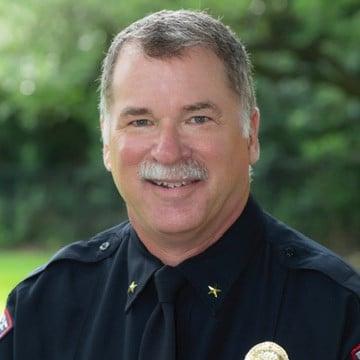


The TPCA Foundation organized a golf tournament on Sunday, March 24, 2024, at the prestigious Moody Gardens Golf Course on Galveston Island, honoring retiring Executive Director Chief James McLaughlin Jr., for his longtime service to TPCA.
Nearly 100 players braved gusty winds on this challenging course, enjoying an abundance of food, entertainment, and opportunities to win prizes. The event successfully raised over $8,000 for the TPCA Foundation Officer Death Benefits.
We extend our heartfelt appreciation to the numerous sponsors who generously supported our 2024 golf tournament!
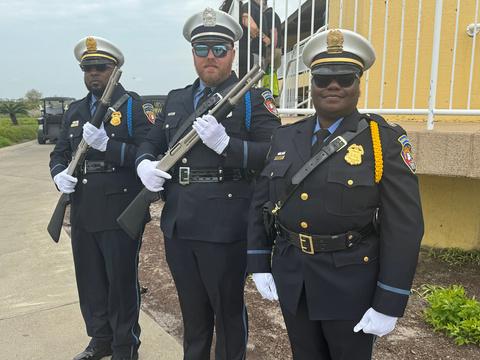










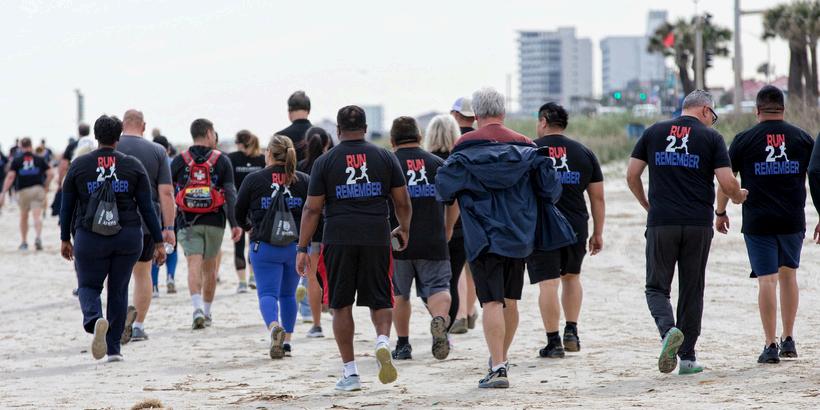

On Wednesday, March 27, 2024, TPCA hosted Run2Remember along the shores of Galveston Beach. This 5K event honored our fallen heroes, with every step contributing to their memory. The proceeds, totaling over $7,000, directly benefited the TPCA Officer Death Benefits Fund, providing essential support to the families of fallen officers through the TPCA Foundation.







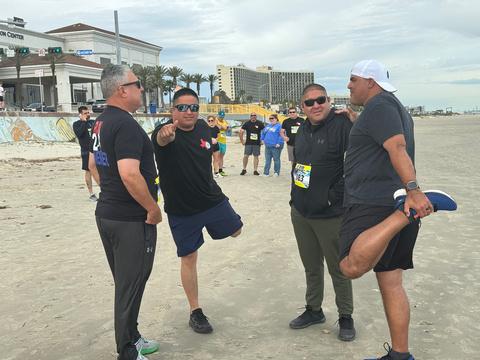


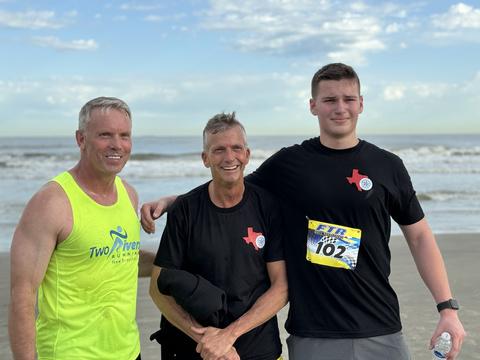

At the conclusion of the 2024 conference, TPCA held a raffle for a Chevrolet Trail Boss Truck to generate funds for the Texas Police Chiefs Association Foundation (TPCAF), which supports the families of fallen officers. The raffle raised over $125,000, enabling TPCAF to provide $10,000 to each family of a fallen officer. On March 28, 2024, Rhonda Dean was announced as the winner of the truck. We extend our gratitude to everyone who contributed to the success of this raffle. Stay tuned for our next raffle to be announced soon.
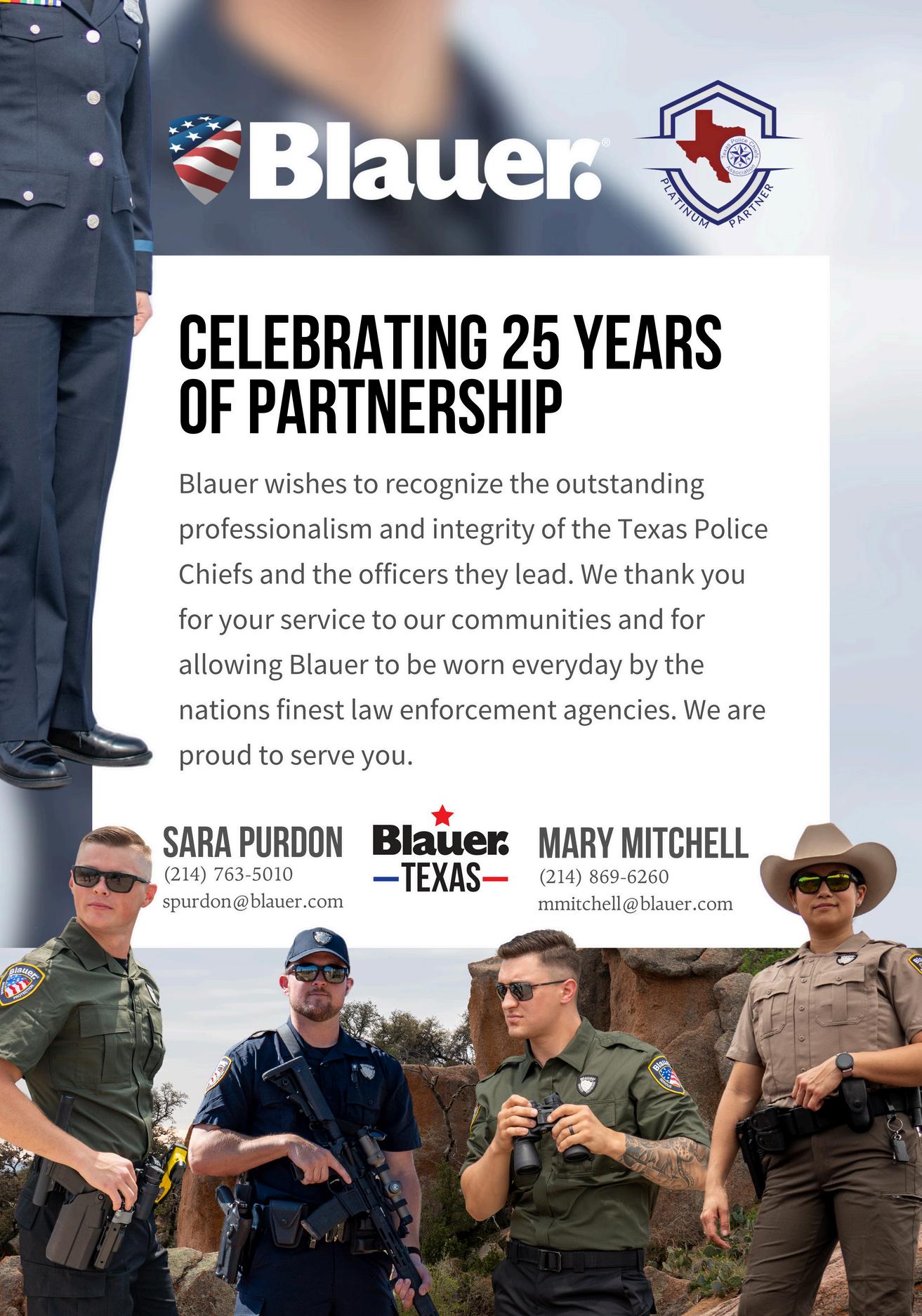


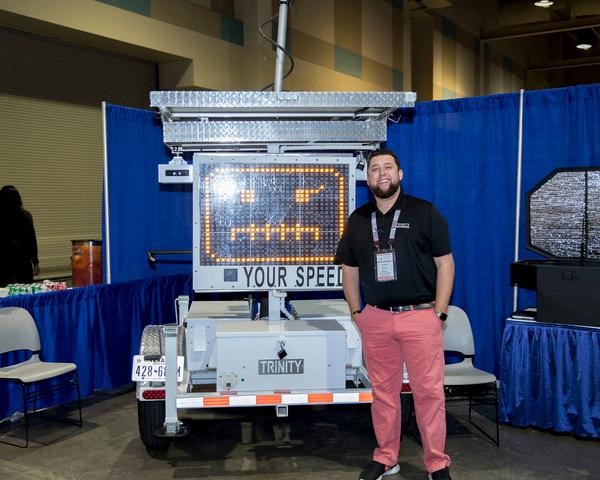

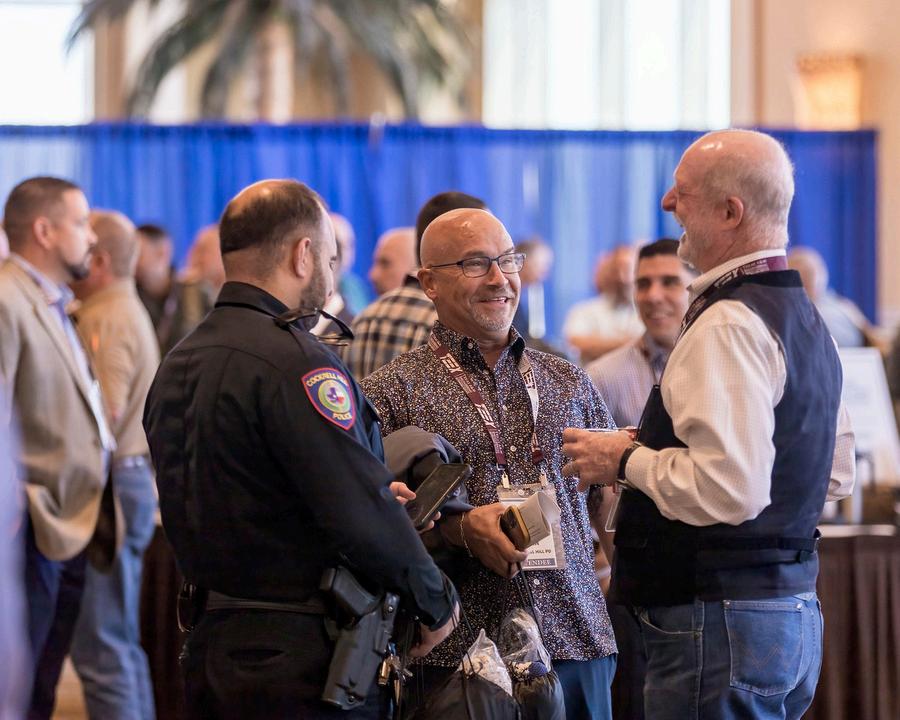
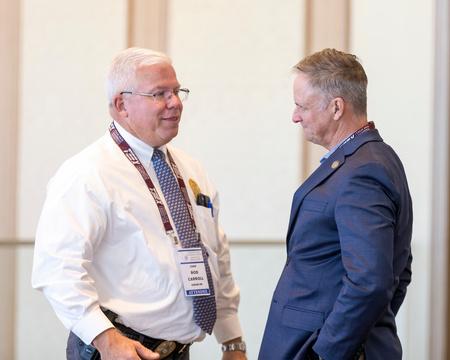

h a n k s !
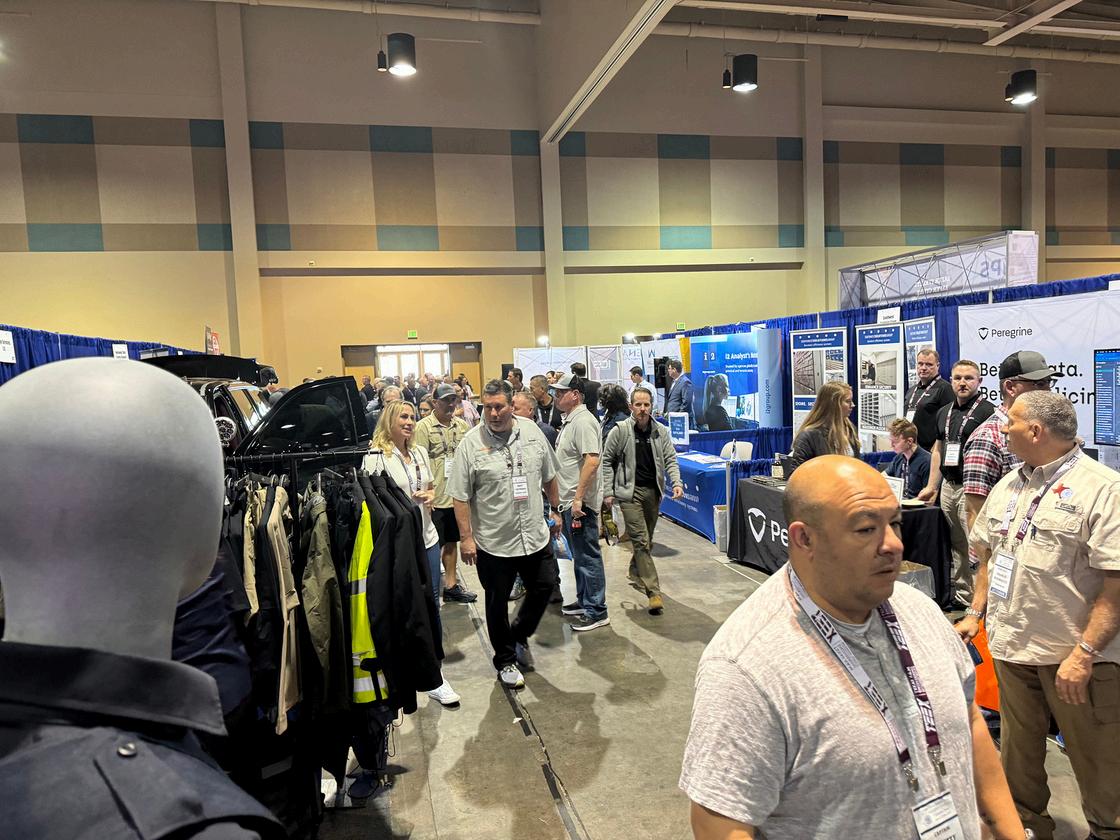

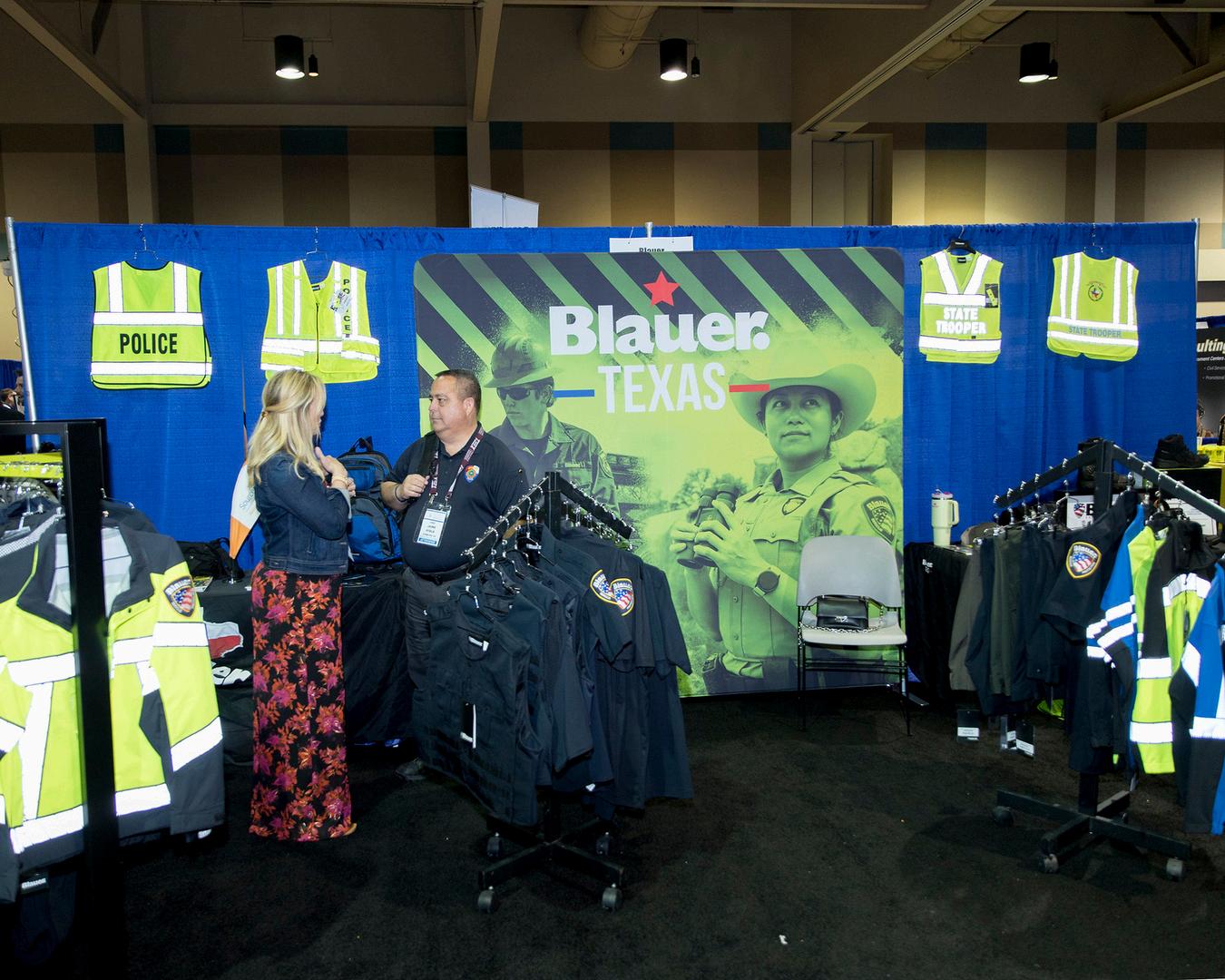
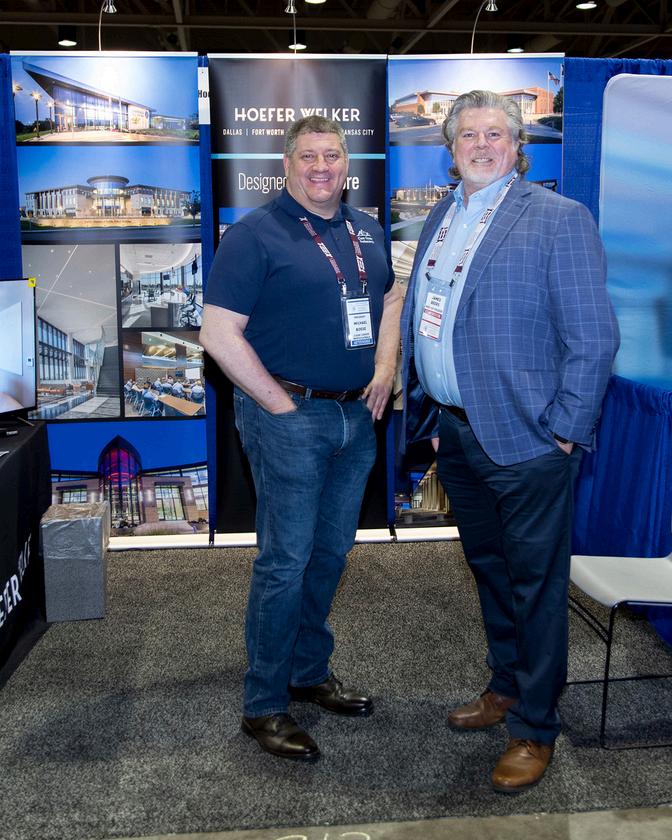
TOur corporate partners and sponsors e r numerous resources to TPCA members e members, partners, sponsors, and other entities who attended TPCA’s 65th Annual Conference, sponsored an event, contributed to the Officer Death Benefit, or supported us in other ways, THANK YOU!
Strategic partnerships elevate an organization from good to great. We have recently developed a partnership program to provide our corporate friends with more opportunities to engage with members. Partnering benefits include branding and messaging opportunities, event participation, and special promotions in our weekly and seasonal member communications. If your company is interested in becoming a TPCA partner, please contact the TPCA office at 512-281-5400 or visit texaspolicechiefsassociation/partnerships.




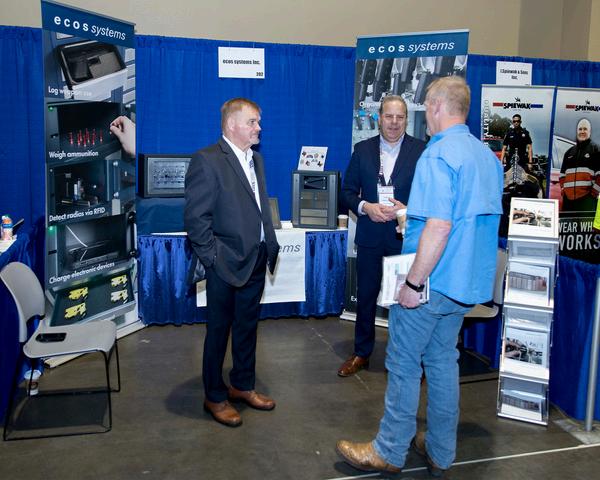





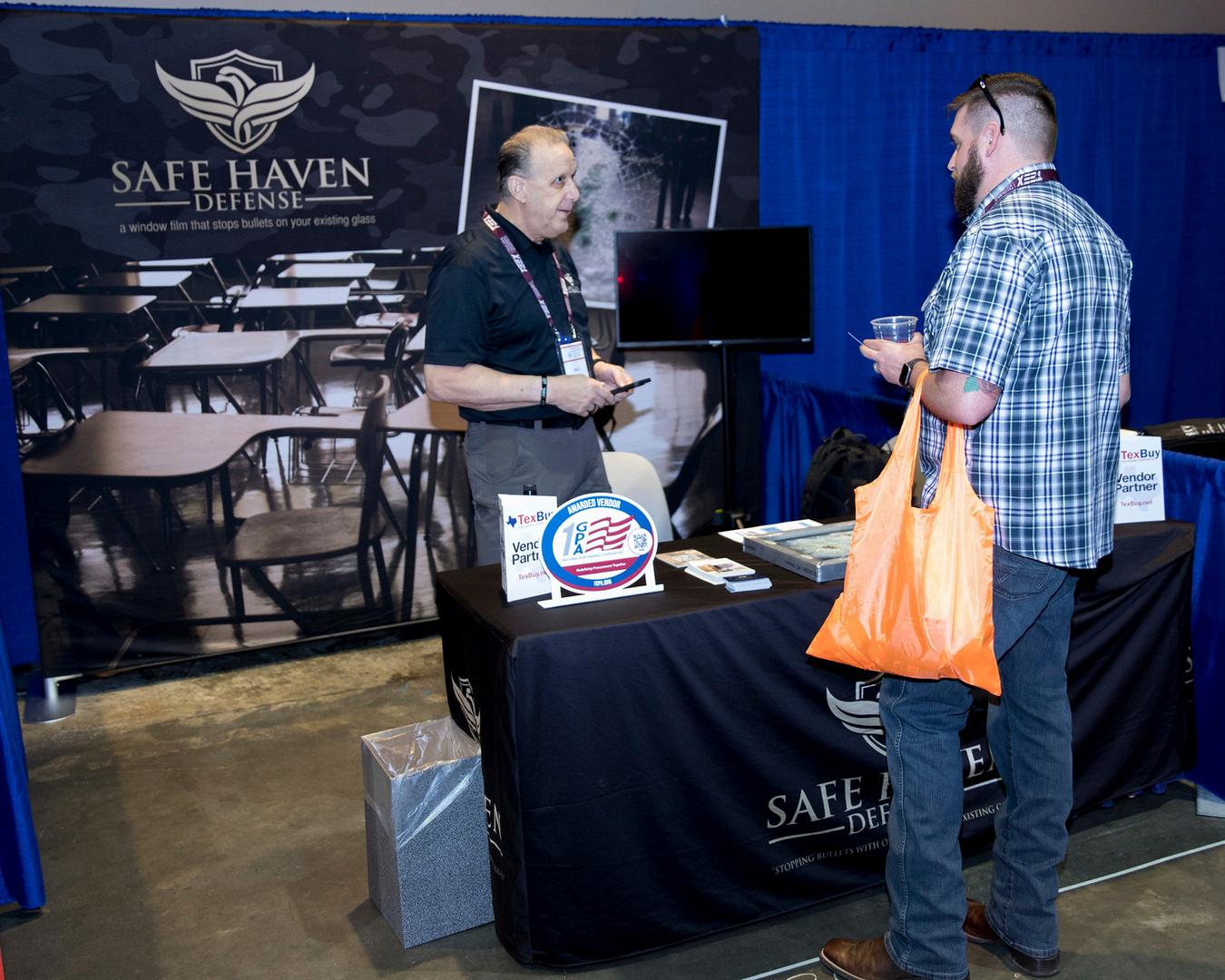
While growing up in the 70’s if you would have asked my school classroom who wanted to be a police officer, many hands would have been raised. Later when I began my policing career in 1984, I discovered we were doing many great things in serving our respective communities. Over my 40-year career, I have seen our profession continue to grow and evolve with an enhanced understanding of community policing, advancement of technology as a force multiplier, and strategic policing initiatives and partnerships that have led to a safer, higher quality of life in most cities. Policing has never been more efficient, effective, and professional than it is today, but, ironically, we’re less respected, by some, than ever before. We have almost a million police officers in the United States culminating in over a billion collective citizen contacts across our country each year that result in only a handful of deaths attributable to a criminal act committed by a police officer. While the numbers don’t support the change in public perception, we all understand our shortcomings are nationally televised leading to a false narrative that policing has degraded. Fostering much of this negative narrative is an agenda promulgated by radical groups and the fact that we, as a profession, have historically not taken enough time to tell our story and highlight the great work of our officers in service to others.
Most families, certainly in the great State of Texas, still support their local police departments. However, even many supportive parents are dissuading their children from becoming police officers as they fear for their children operating in a difficult political environment, which now also involves increased violence against officers predicated an erosion of respect for our beloved calling. As our applicant pool has decreased, we find ourselves hiring each other’s officers, which will never be sustainable when not enough young people are entering the profession. A creation of the “haves” and “have nots” in police departments is occurring with some departments, who are not attracting enough lateral officers or basic recruits, are lowering their standards to fill vacancies. Unfortunately, we understand all too well that knowingly hiring mediocrity will only lead to increased performance issues and more police misconduct.
While this all sounds bleak, here’s the silver lining…WE are Texas Police Chiefs and WE have decided to do something about it Leaders lead and TPCA is a leader. One of the main reasons I retired as a city manager and returned to policing is because I wanted to be a part of helping change the narrative back to where it was and should always be – that policing is one of the most honorable and noble professions known to mankind. To that end, I was honored to be selected as the Chair for the newly formed TPCA Recruitment and Retention Committee Our committee has Chief representatives from all parts of the State working to provide deliverable resources in a single portal to Texas police departments to immediately aid in recruiting and retention, humanizing the badge, bridging the gap for youth to enter the profession, ideas on civilianization, and capitalizing on all the great things Texas has to offer to attract out-of-state lateral officers
A longer-term goal for our committee is to access private sector funding and leverage those relationships to create an enduring national marketing and branding campaign to restore the narrative that policing is a desirable public service profession and police officers are heroes who should never be targeted with violence. This effort must be inclusive and stay apolitical to reach the hearts and minds of all Americans.
I want to thank our TPCA Executive Director, Gene Ellis, for his commitment in facilitating this new committee. Our committee welcomes your input as we move forward together in this journey to assist every Texas agency with recruiting and retention resources and to ensure policing is viewed as a desirable profession predicated on nobility and honor and critical to everyone’s quality of life We have an obligation to pay it forward for our new generation of police officers who are committing themselves not because it’s a popular profession, but because they are men and women of exemplary character who want to make a difference in the lives of others. Today, when we ask that classroom of kids who wants to be a police officer, sadly, few hands may be raised – it’s up to us to change that
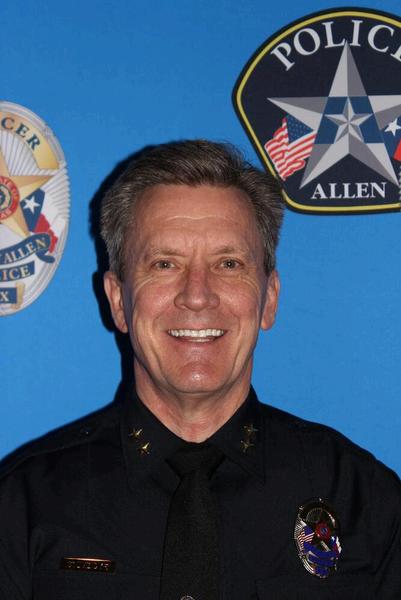


In 1958, Retired U S Army General Dwight D Eisenhower was president of the United States, Charles de Gaulle was elected president of France, Fidel Castro declared war on the Batista government in Cuba and a small group of Texas Police Chiefs met at the Crockett Hotel in San Antonio to form an association. The purpose was to improve communication among the chiefs in order to enhance professional law enforcement. Dallas Police Chief Carl Hansson was chosen as the first President of the Texas Police Chiefs Association.
Over the ensuing years the association continued to grow. Each current president acted in the capacity of an “executive director,” setting agendas for meetings; collecting dues; and with the help of other board members, communicating with the membership
The TPCA board eventually saw the need for an executive director as the association had grown too large for just a president, who was a full time chief, to adequately keep up with the association’s business.
At that time, past TPCA President Chief Loyd Mathews who had retired as chief of the Paris, Texas Police Department was currently serving as a training representative for the Texas Commission on Law Enforcement Officer Standards and Education (the precursor for our present-day TCOLE). Due to his past involvement with TPCA, he was asked to serve as executive director.
Chief Mathews was very well known throughout the state and particularly at the Texas State Capitol Although Loyd was an excellent director, money was hard to come by to support the association Past TPCA President retired Chief Mike Courville even had to take out a personal loan at one time to pay the association’s bills. This brought about the famous “cigar box” for the little money the association had.
The TPCA board decided to enter into a contract with a telemarketing firm to solicit funds on behalf of the association. The donors received a TPCA sticker along with child safety information. Although TPCA board members were not happy with the telemarketing aspect they knew it was necessary to grow the association.
Telemarking did work on a limited basis and generated enough funds for the association to better serve members
Chief Mathews announced to the board he intended to retire as executive director He urged the board to establish an office in the Austin area as he considered working with the legislature one of the most important things the association should be doing.
Retired Duncanville Police Chief Mike Courville was hired as executive director, and I was asked to serve as general counsel for the association. Mike moved to Georgetown to be closer to the Capitol.
Local TML attorney Bill Krueger offered TPCA an office at his firm in downtown Austin, two blocks from the Capitol During the legislative session it served as my office and was the morning meeting place for police department representatives who would be going the Capitol that day Dallas, Houston, and San Antonio were there on a daily basis Many other agencies sent representatives as needed to testify at committee hearings on legislation affecting law enforcement.
Unfortunately, due to family health reasons, Chief Courville had to resign as executive director of TPCA and move back to Duncanville. The board asked if I would serve as both executive director and general counsel on an interim basis.
Mr Kreuger needed to move their offices and TPCA lost the office space As I was living in the Elgin area about twenty-five miles from Austin, Chief Courville and I decided to try and find suitable space in Elgin as it would be considerably cheaper than Austin We were fortunate to locate 500 square feet next to the First National Bank for $500 00 a month all utilities included
Our next project was to find staff support for the association. Mike and I were hoping to find a person, perhaps a legal secretary, who was tired of driving to Austin every day. We placed an ad in the local weekly newspaper, the Elgin Courier. That day and before the ad ran, the local bank president, Mike Davis, called saying he knew the perfect person for us. Mike served as the volunteer proofreader for the paper and had seen our proposed ad.
We went ahead and ran the ad receiving 12 applications. Mike and I narrowed it down to six. We interviewed them and one stood out from all the rest- the same person the bank president had recommended – Tammy Martin! She was local, established and a legal secretary
Many positive board decisions were made over the ensuing years, eliminating telemarketing, setting sustainable membership dues, increasing the number of members and greatly expanding the annual conference. A partnership was developed with The Bill Blackwood Law Enforcement Management Institute of Texas through the great leadership of Dr. Rita Watkins.
As the association grew, the Texas Police Chiefs Association Foundation was created to assist families of law enforcement officers killed in the line of duty, a recognition program, now called accreditation and a training program for law enforcement managers offering over 50 courses. All these have been very successful due to chiefs like Barbara Childress, Foundation Board Chair, Marlin Price, former Recognition Program Director, and Mike Gentry, former Director of Training, as well as many others over the years
The future is bright for the association Retired Chief Gene Ellis, who was selected as the next executive director, will bring new and progressive ideas to the board for discussion As members I encourage you to be involved, ask questions volunteer bring your own ideas to the board that will improve Texas law enforcem
God Bless Texas and the United States.
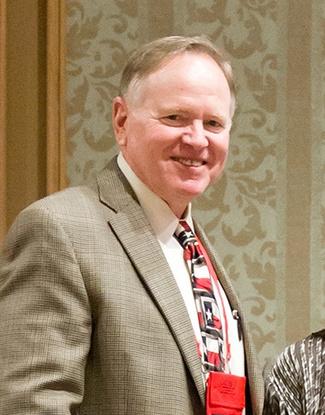

TPCA GENERAL COUNSEL
CHIEFGARYTITTLE,TPCALEGISLATIVECHAIR
The Texas Police Chiefs Association represents management of police departments across the great state of Texas From departments of several thousand officers to those with single digit numbers of officers, TPCA strives to represent the needs of the many different police departments. Texas has over 2,500 law enforcement agencies to include municipal, sheriff’s departments, ISDs, constables, special districts and more.
Each legislative session, law enforcement members brace for changes to the criminal justice system. The process is grueling, and the impacts can be consequential. The topics in policing are ever growing as the expectations of police departments continue to grow. The community expects more, school districts seek additional influence, and local officials see police as problem solvers as much as crime fighters. The various expectations generate a drain on police resources, but also require a broad knowledge base to better serve our communities
A primary responsibility of government is to protect the public and provide safe communities to promote economic development, further educational opportunities, and encourage overall growth and success. This opportunity to serve our communities is not lost by TPCA leadership, as we continue to find ways to meet our own high standards as well as those of the people we serve.
The challenges of managing numerous pieces of proposed legislation on countless topics, while simultaneously representing diverse perspectives, demands commitment and balance. As TPCA approaches the upcoming session, we are putting together a team of law enforcement leaders to share in analyzing bills. We will divide the workload by various committees and even by topics. We will utilize those who are subject matter experts on major issues to provide written and oral testimony. Together, we collaborate to take appropriate positions on topics and specific legislation to better support the policing profession and to promote the mission of police responsibilities
Since 2007, TPCA has tracked no fewer than 650 bills each session. But every session that number has increased and in 2023 we tracked over 1,000 bills that would in some way impact the criminal justice system. Of last session’s voluminous bill count, only 15 percent of the 1,000 plus actually passed both chambers. The high volume filed versus the low percentage passed, magnifies the burden of preparation and anticipation of what bills may get hearings and gain traction through the overall legislative process.
The executive director and staff will continue to forge valuable relationships and express interests and concerns to improve the policing profession. Legislative committee members will remain strongly connected to other colleagues within the criminal justice system such as Texas Association of District and County Attorneys, the Texas Sheriffs’ Association, Texas Municipal League, and numerous law enforcement officer associations across Texas
In decades past, police chiefs and officers have not collaborated in the same fashion as we do today. There was a sense of us versus them. However, collectively we now acknowledge we are mostly moving in the same direction to improve our profession and better serve our communities. We also recognize we may have different opinions on certain labor issues, but the relationships remain professional enough to agree to disagree.
The following subjects are mainstays of concern as we traverse through the legislative process, but a significant concern continues to focus on the safety and wellbeing of the men and women doing the job Officers, dispatchers, and jailers face numerous challenges As leaders, we remain steadfast to promote mental well-being, physical health and wellness, along with safety equipment and training
With a complex and evolving legal landscape, law enforcement officials must constantly stay updated with new laws and amendments. This requires ongoing training and education to ensure compliance and effective enforcement. Officers must navigate complex legal requirements related to search and seizure, arrests, and the use of force. Mistakes in these areas can lead to legal challenges, civil rights lawsuits, and significant public scrutiny. This is one of several reasons the Texas Police Chiefs Association will again pursue legislation for police departments to become accredited agencies to meet high standards that are set forth in a robust program based on best practices.
Resource constraints remain a difficulty for most law enforcement agencies as we all face budget limitations, affecting our ability to hire new personnel, retain those we currently have, purchase equipment, and further invest in training This challenge can hinder our capacity to implement new laws effectively.
Community relations remains at the forefront of policing in America. Building and maintaining trust with the community is essential but challenging, especially in areas with a history of tension or conflict between law enforcement and residents. Effective law enforcement relies on community cooperation, which can be undermined by incidents of perceived or actual misconduct. What occurs across the country can impact perception right here in our own backyards.
The rise of cybercrime presents new challenges that require specialized knowledge and tools. Law enforcement agencies must adapt to investigate and combat crimes such as hacking, identity theft, and online fraud A topic to parallel cybercrime is the use of technology by law enforcement entities Identifying ways to become more efficient and proactive using technology is changing the way we approach our mission to fight crime Being receptive to those changes, but aware of pitfalls is a must as we move our profession forward.
Interagency coordination often results in more efficient and effective law enforcement but requires coordination between local, state, and federal agencies. Differences in jurisdictions, shared resources, and priorities can complicate efforts to address crime comprehensively.
Political and social agendas often apply pressures to law enforcement efforts on certain topics such as homelessness and mental health. The expected approach to these issues is influenced by political and social spectrums Officers must enforce laws impartially, but political debates and social movements can create additional burdens and scrutiny Community expectations are often fluid and dynamic
By understanding and addressing these challenges, leadership of the Texas Police Chiefs Association and other criminal justice officials can work together to more effectively navigate the o influence through experience and expertise in the legislative ve Session.
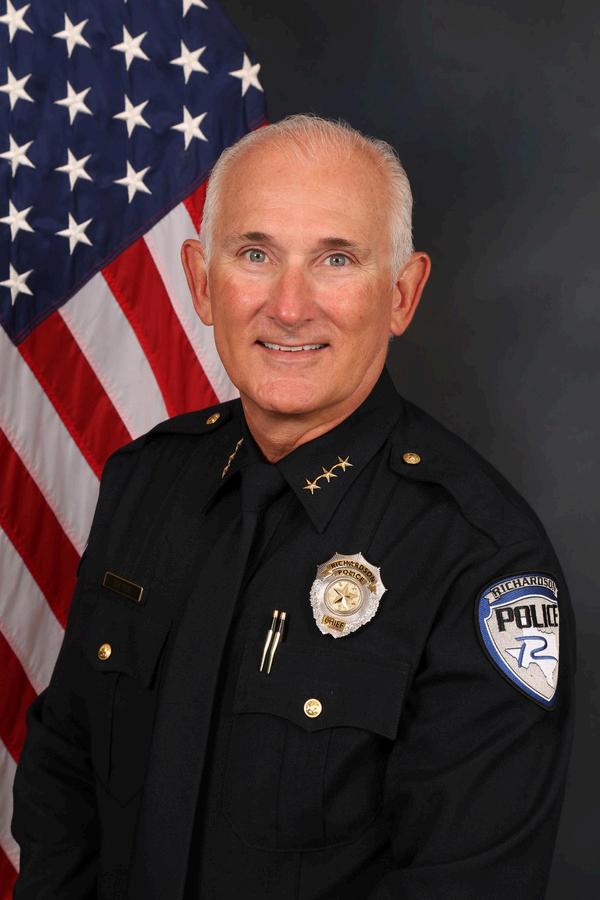
Chief Gary Tittle
The Bay City Police Department (BCPD) is proud to announce their Commercial Motor Vehicle Enforcement (CMVE) Ride Along Program with the Texas Department of Public Safety (TxDPS). This initiative focuses on enhancing officer knowledge and enforcement capabilities related to commercial motor vehicles (CMVs) to improve road safety and prevent crashes, injuries, and fatalities.
Beyond traditional classroom instruction, the program offers BCPD officers real-world experience by participating alongside TxDPS CMV Enforcement Troopers during roadside inspections. This immersive approach fosters a spirit of continuous improvement and openness to new enforcement strategies and best practices.
The program curriculum encompasses a comprehensive overview of CMV regulations, including driver licensing requirements, vehicle specifications, proper load securement techniques, and safe transportation of hazardous materials. During ride-alongs, officers gain firsthand exposure to various inspection types.
Through this collaborative effort, BCPD officers will:
Gain a deeper understanding of relevant regulations within their jurisdiction and authorized enforcement actions for CMVs. Observe critical violations by commercial truck drivers that pose immediate crash risks, allowing for timely intervention. Enhance their knowledge of the types of hazardous materials transported through the city, associated risks, and proper emergency response protocols
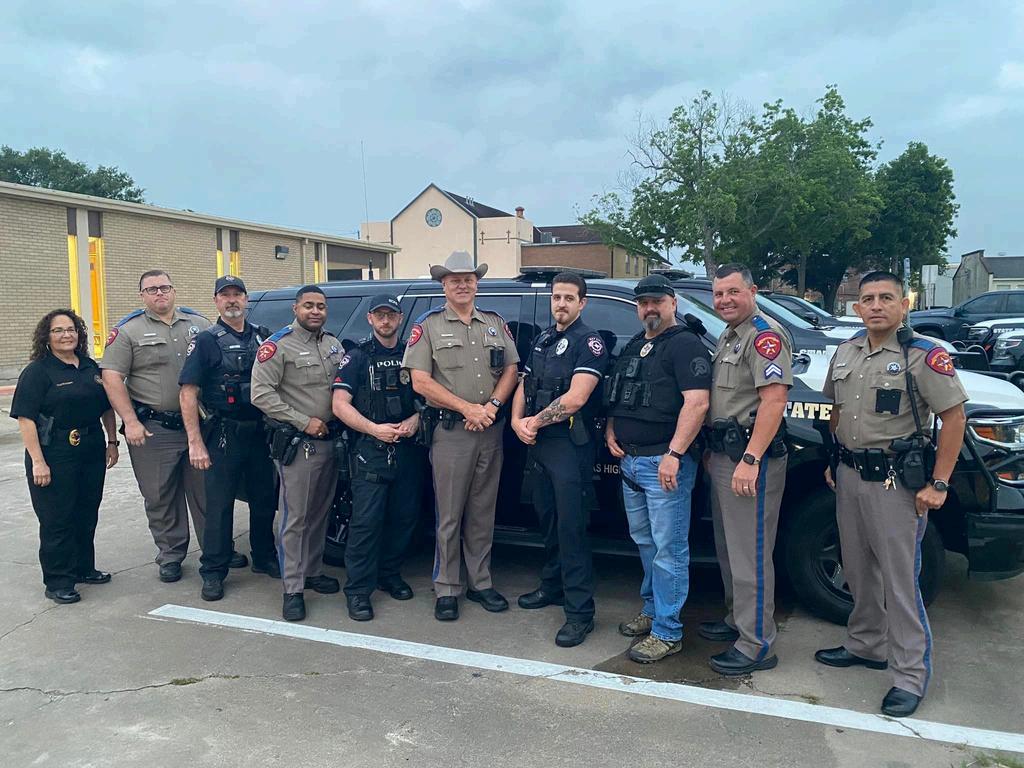
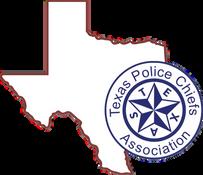

The Texas Police Chiefs Association (TPCA) provides an annual partnership program that allows sponsors to network with over 1,400 members from various Texas Police Departments throughout the year Partnering benefits include opportunities for branding and messaging, event participation, and special promotions in weekly and seasonal member communications This program ensures high visibility with members and offers the most effective way to connect with Texas law enforcement leaders






CO-AUTHORED BY CHIEF MICHAEL MILLER
Big changes have been made to the Federal Bureau of Investigations (FBI) Criminal Justice Information Services Security Policy (CJISSECPOL) that will impact every police department in Texas in the next few months Agencies have until October 1, 2024 to be compliant with the latest CJIS Security Policy revisions, and the size and scope of these requirements may take some Chiefs and IT Directors by surprise. The changes to the policy are significant, take time to implement, and can be costly for agencies. Unfortunately, these changes will likely create compliance issues for most agencies across the U.S., and our fear is that Chiefs and city IT Directors may be unaware of the looming deadline.
We have all seen the headlines of ransomware attacks targeting police departments and local government agencies across the country. In some of these cases, we have seen sensitive Criminal Justice Information (CJI) obtained by hackers ultimately released on the dark web Forbes reports ransomware attacks were up 95% in 2023 The threat environment has required the FBI to move quickly to ensure that CJI and Criminal Justice Information Systems are only accessed by individuals authorized to access them To protect the larger criminal justice system of systems, it is going to require all of us to get our systems into compliance. As a result, the FBI sought to modernize the CJISSECPOL, aligning the document with National Institute of Standards and Technology (NIST) standards. Changes to the policy were initiated in October 2022 with the release of version 5.9.1, with versions 5.9.2 and 5.9.3 released in May and September of 2023, respectively. The current version is 5.9.4, released in February 2024, and new changes are consistently being recommended to the FBI’s Advisory Policy Board (APB) for adoption and implemented upon signature by the FBI Director. All of the introduced changes and additions will have different implementation dates, and agencies should be aware of the current policy as well as upcoming changes. The Texas Department of Public Safety’s (DPS) CJIS Security Office is working to post information regarding these changes to its website and disseminate via the Department’s Technical Security listserv
An example of a change introduced by version 5.9.2 and required by October is the implementation of multifactor authentication (MFA) across all systems used to process, store, or transmit CJI, and potentially the agency applications used to process, store, and transmit CJI. The FBI doesn’t prescribe how this requirement is to be achieved as each agency has their own unique technical environment, but numerous solutions are available on the market. If agencies don’t have savvy IT resources who already have a perspective on how to implement this requirement, the number of potential solutions and vendors could be overwhelming.
To assist with day-to-day activities, as well as compliance with the CJISSECPOL, every agency should have a Local Agency Security Officer (LASO) to assist the agency in gaining and maintaining compliance with the CJISSECPOL, report incidents, etc Agencies would benefit from designating a LASO with good IT skills or an IT background While agencies are required to have a LASO, agencies can have as many LASOs as needed to support the agency To assist the LASO and their agency, Texas DPS has a team of Technical Auditors and Compliance Analysts available to answer any questions regarding policy updates, impact, etc.
The International Association of Chiefs of Police (IACP) CJIS Committee has also developed and published 6 podcasts outlining some of the changes in the FBI’s CJIS Security Policy. These podcasts can be found on IACP’s Learn website: https://learn.theiacp.org/podcast (search for “CJIS”). Additionally, Texas DPS has been disseminating information regarding these changes via the Crime Records Newsletter as well as during the 2023 Crime Records User Conferences held in 14 locations throughout the state For 2024, Texas DPS will continue to broadcast information by creating a TX CJIS ISO Forum that will meet on a regular basis to discuss changes, conduct another round of Crime Records User Conferences across the state, and increase the distribution of newsletter articles on these and upcoming changes to the CJIS Security Policy
Finally, the IACP has rolled out the IACP Connector, which is a tool to connect those making technology decisions with people, agencies, and vendors who may have already implemented these solutions with the desire to decrease the time it takes to make technology decisions.
Texas DPS posted a summary document titled Texas CJIS Requirements Companion Document version 5.9.4 which covers the policy changes: what is already due, and what is coming as of 5.9.4. It can be found on the Department’s website
Current and historical Crime Records Newsletters can be found on the Department’s website: https://www dps texas gov/section/crime-records/crime-records-division-newsletters Information pertaining to upcoming Crime Records User Conferences can also be found on the Department’s website
Agencies can reach out to the CJIS Security Committee by phone at 512-424-5686 to reach a Technical Auditor or one of the Compliance Analysts. Compliance Analysts can also be reached by email at CJIS.Assessments@dps.texas.gov


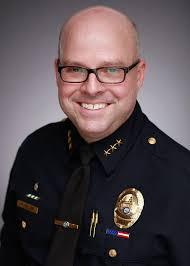
The VINCIBLE roll call training program is a partnership between the Risk Pool and the Texas Police Chiefs Association that began delivering free and effective training content to law enforcement agencies and individual officers across the state including the Pool’s law enforcement members in 2015. The program was created and has been nurtured since by San Marcos Chief of Police Stan Standridge with help from members of the TPCA Officer Safety and Wellness committee.
The goals of the program are to encourage positive change in our member police departments by invading police culture with training content that is relevant, recurring and readily available The VINCIBLE program is all of those things and achieves its goals through brief ten-to-fifteen-minute roll call trainings delivered to its subscribers on a weekly basis.
The content aims to generate conversations among officers and supervisors relevant to one or more of the five cornerstones of the VINCIBLE program: Slow down, buckle up, stay fit, 540 degrees of awareness, and wear your armor. On Friday, June 21, 2024, the VINCIBLE team created and shared the 400th such roll call training slide deck to its nearly 1,500 subscribers, 1,471 to be exact. This is a significant milestone in Texas law enforcement, and the Risk Pool’s contributions to it should be celebrated.
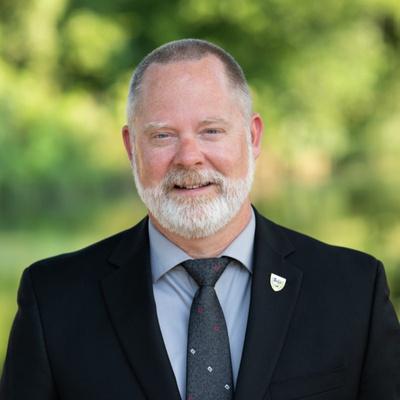



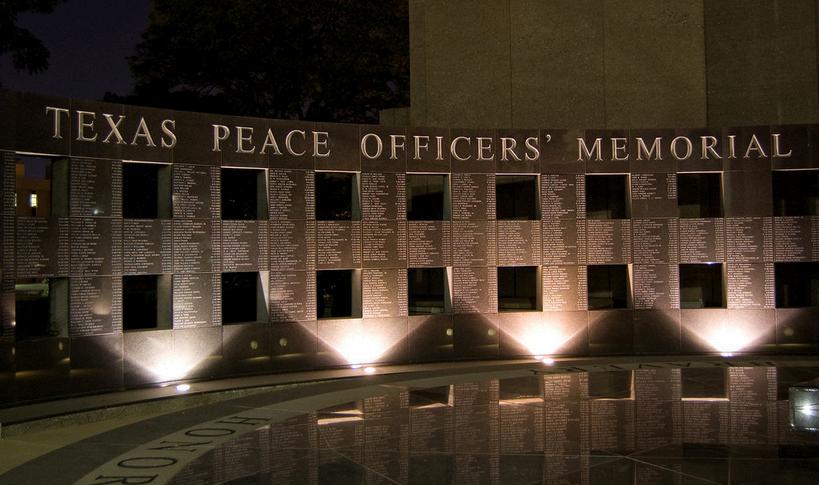
The Texas Police Chiefs Association Foundation is a 501(c)(3) non-profit organization dedicated to supporting the families of Texas law enforcement officers who have died in the line of duty through the Officer Death Benefit Program. When an officer passes away in the line of duty, the Foundation promptly provides a $10,000 check to the surviving spouse, children, or parents, as applicable.
Since 2001, the Foundation has provided financial support to the families of fallen officers, distributing over one million dollars in benevolence funds since its inception. Funds are budgeted for this fiscal year to continue the program and will be included in future budgets as well.
The Foundation also supports leadership training for law enforcement officers, recognizing that many of the over 2,000 law enforcement agencies in Texas have fewer than ten officers and limited training opportunities The Foundation sponsors training sessions across the state, ensuring local officers have the opportunity to attend.
Additionally, the Texas Police Chiefs Association Foundation sponsors an accreditation program for law enforcement agencies. This program aims to help agencies develop best practices, policies, and procedures, promoting increased professionalism and ensuring departments have clear and legally sound policies in place.
